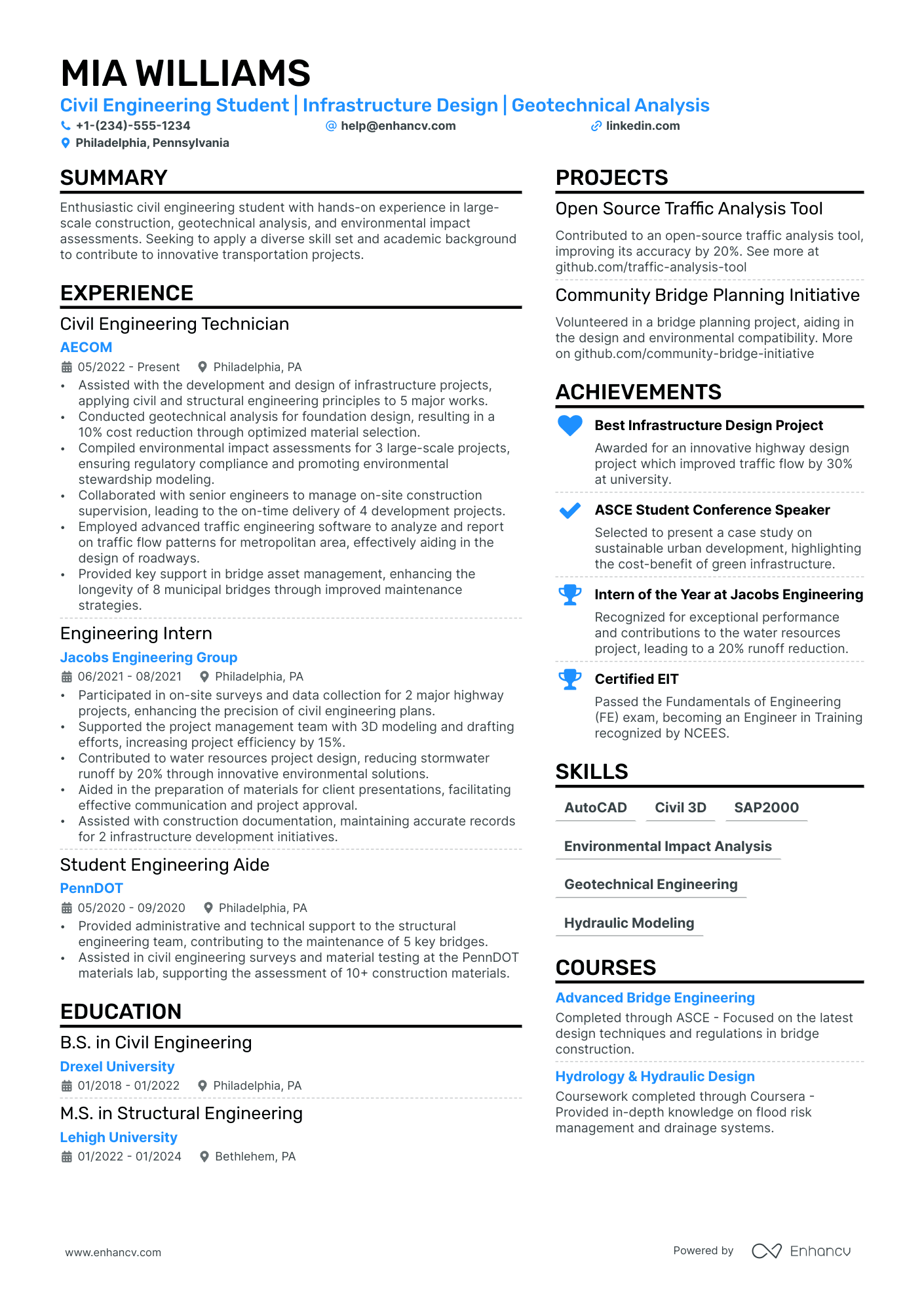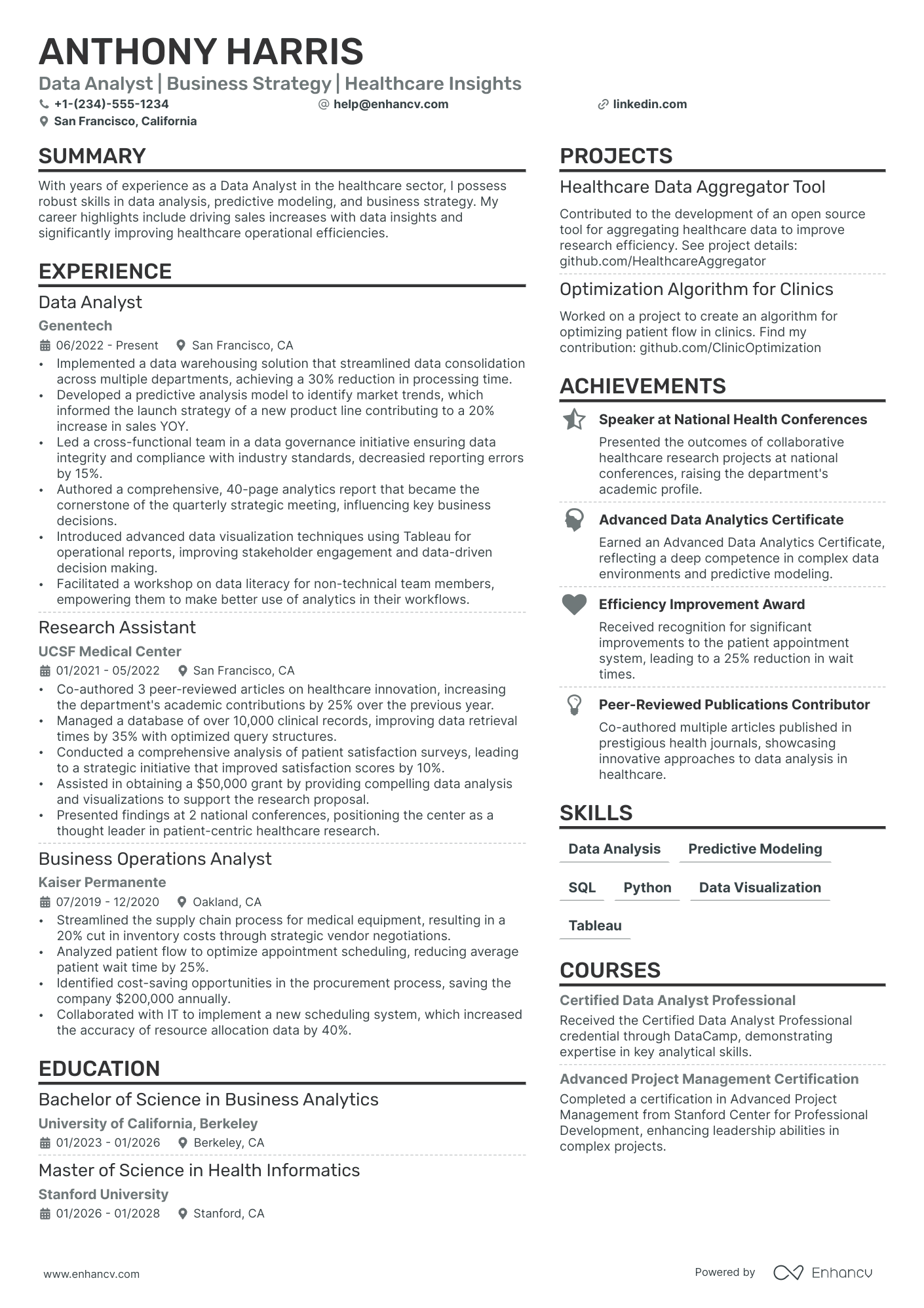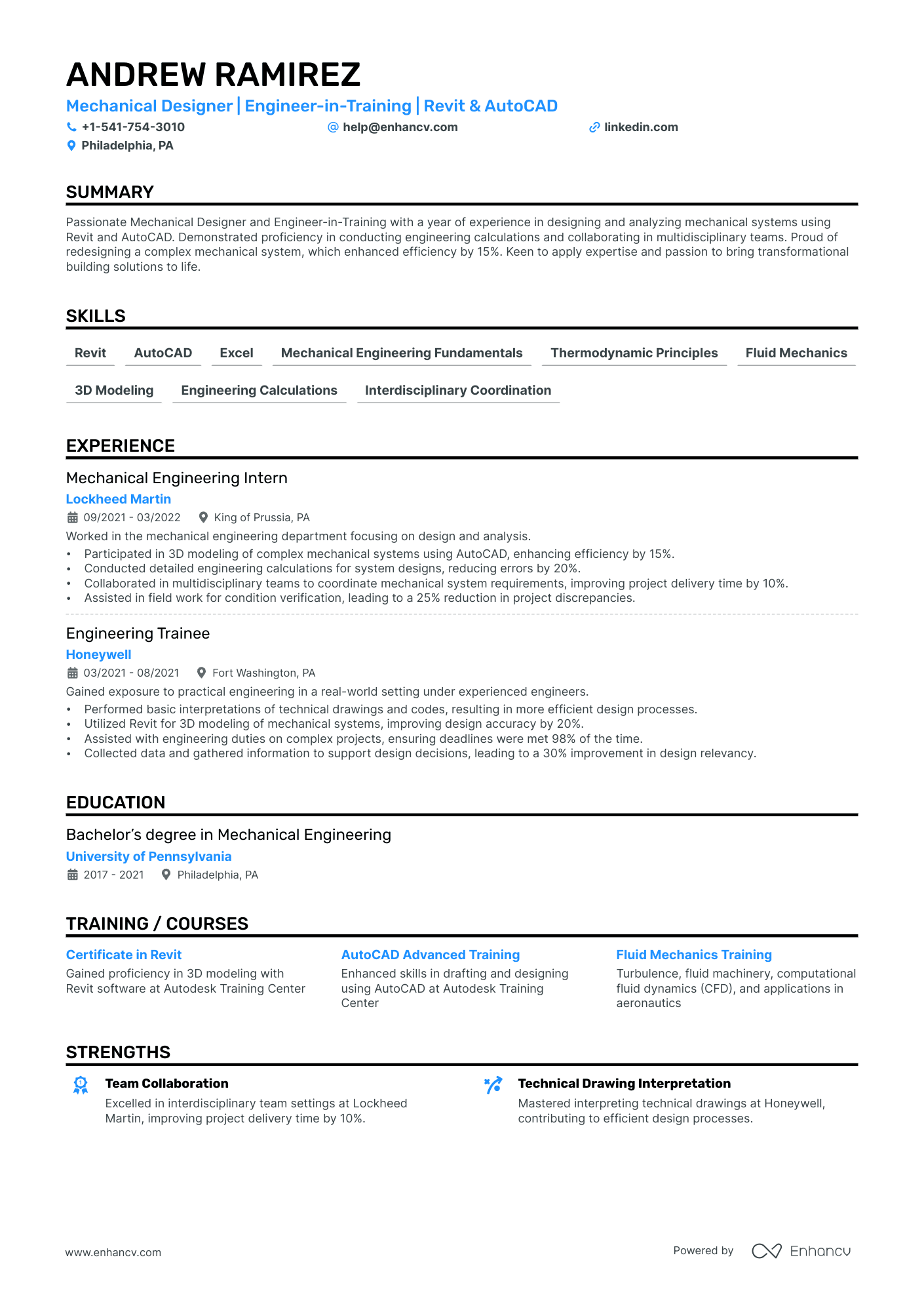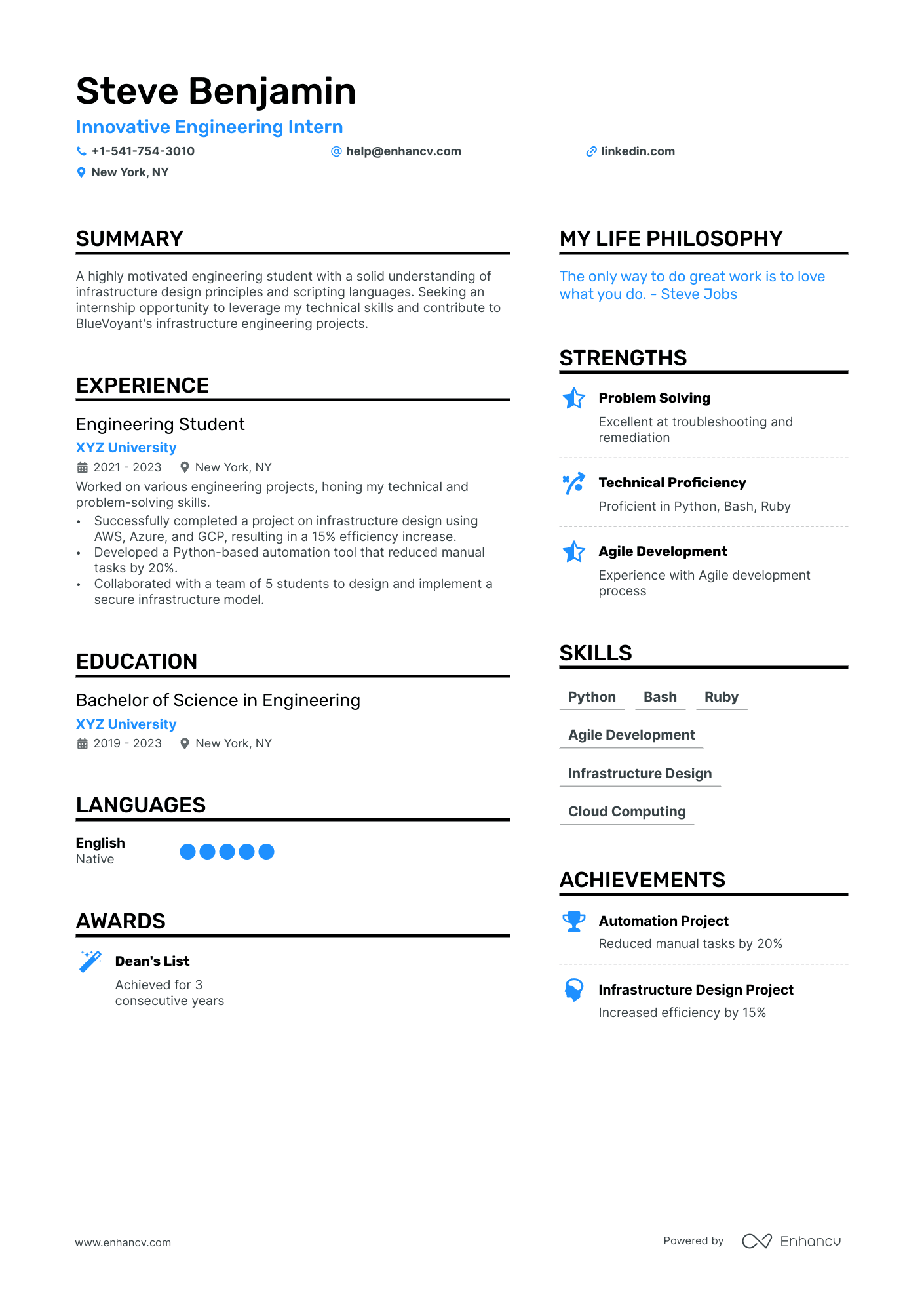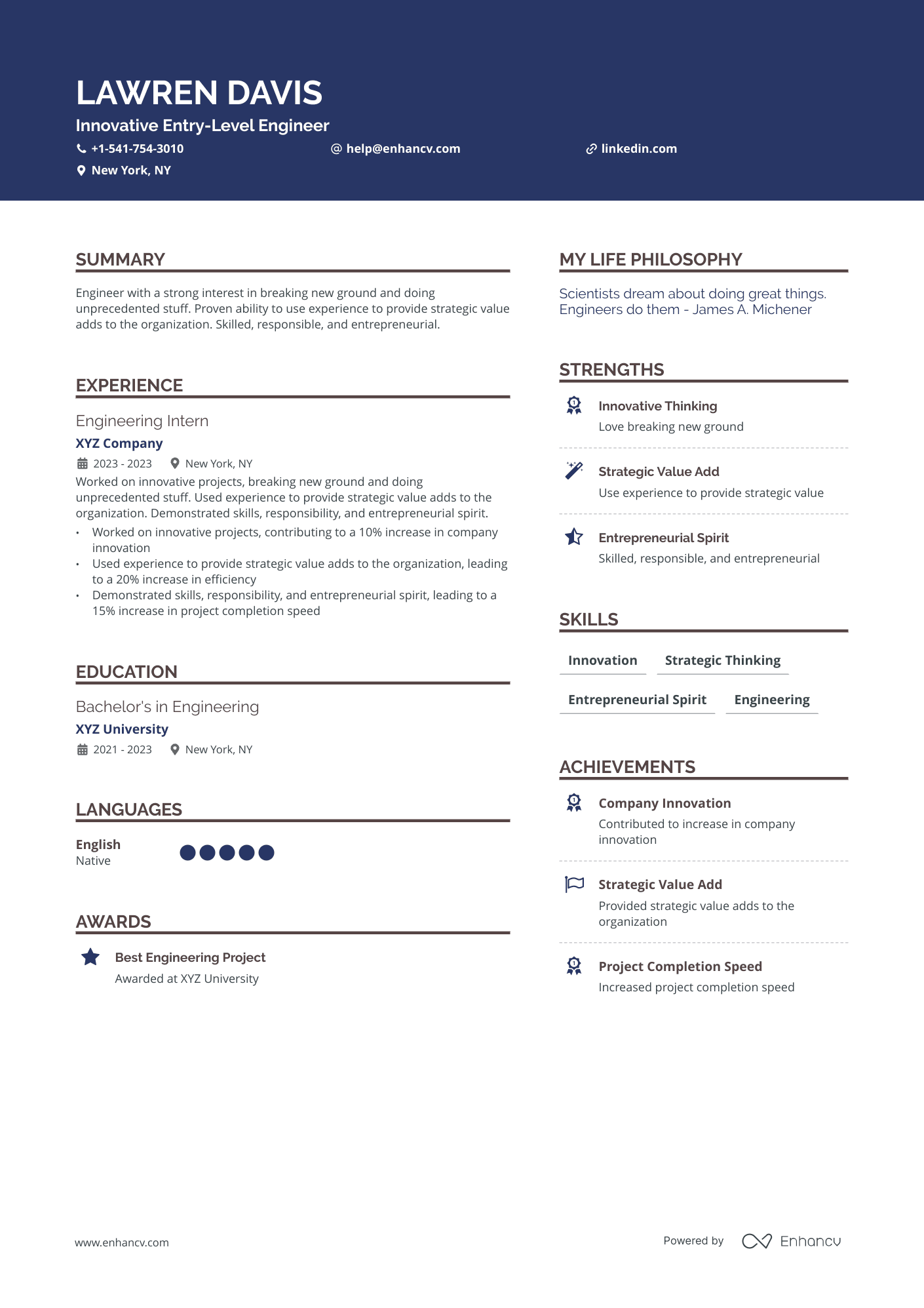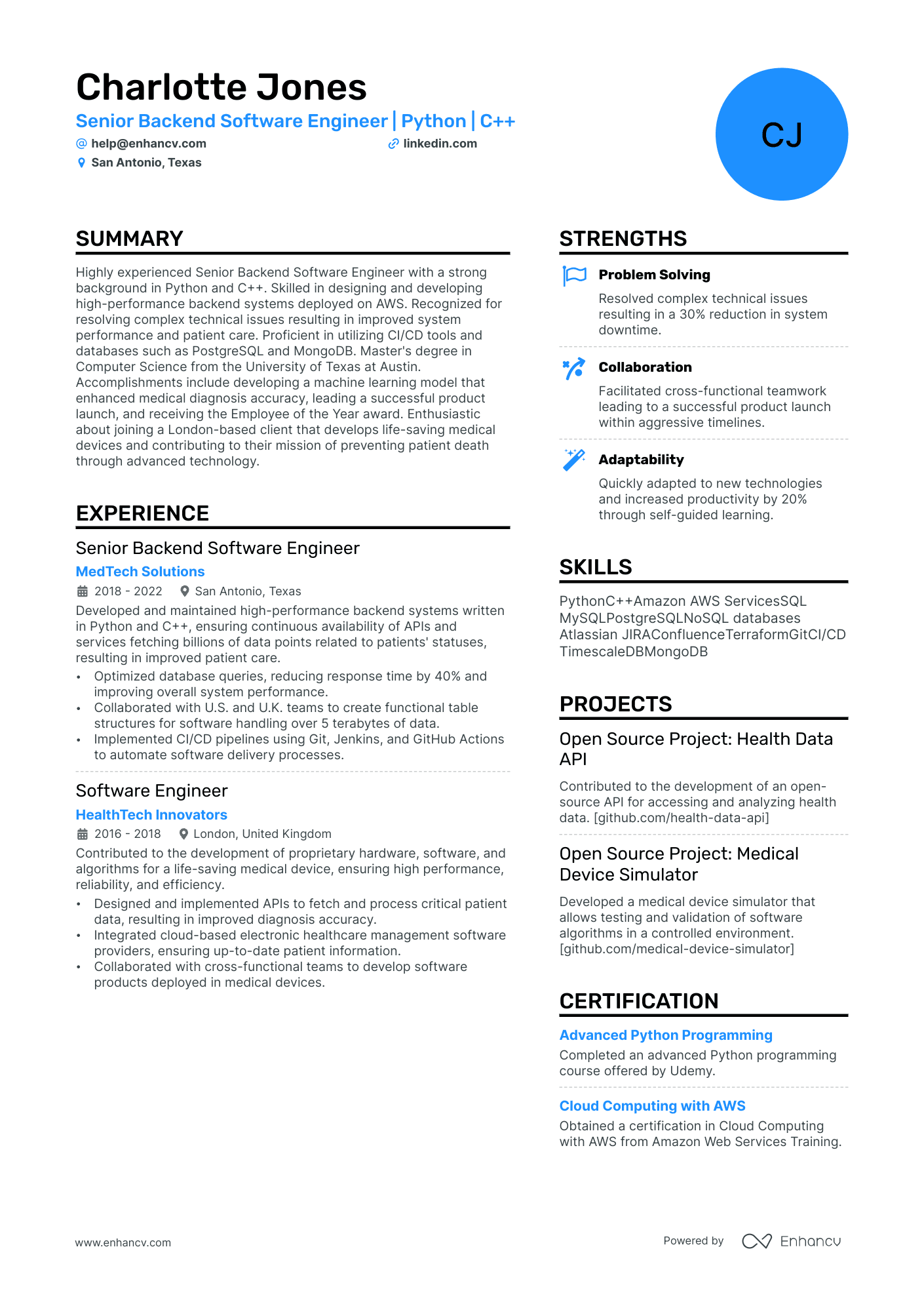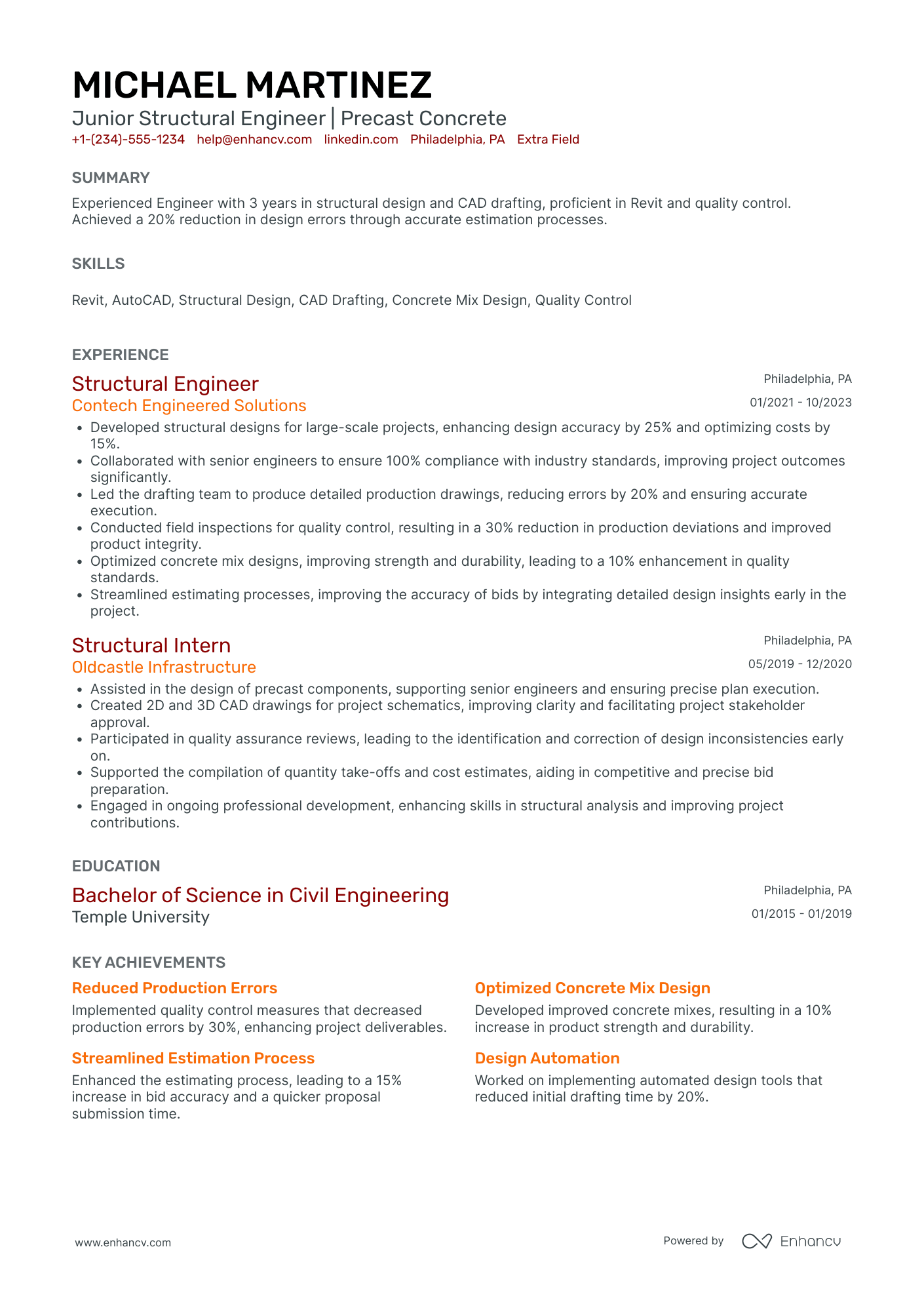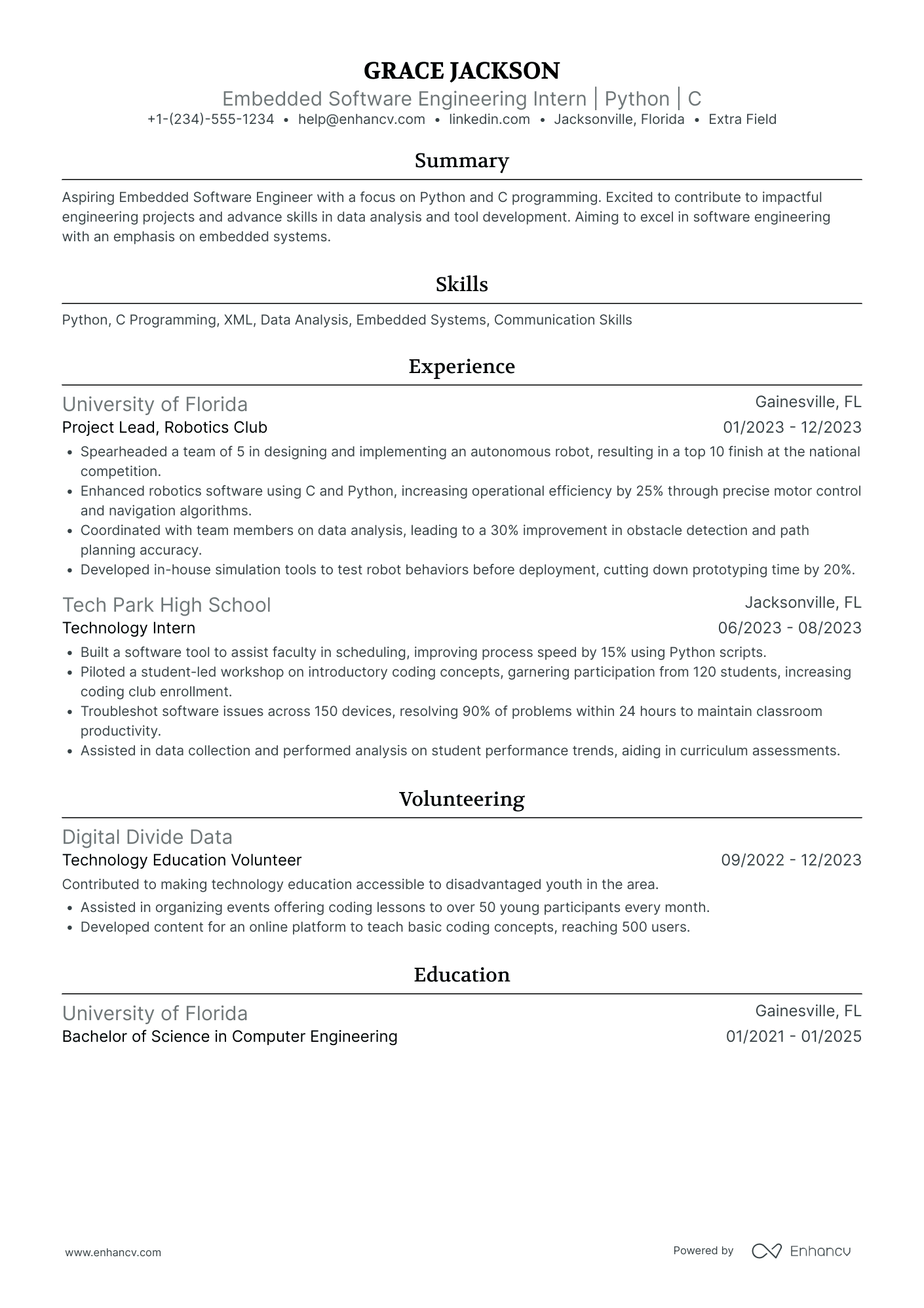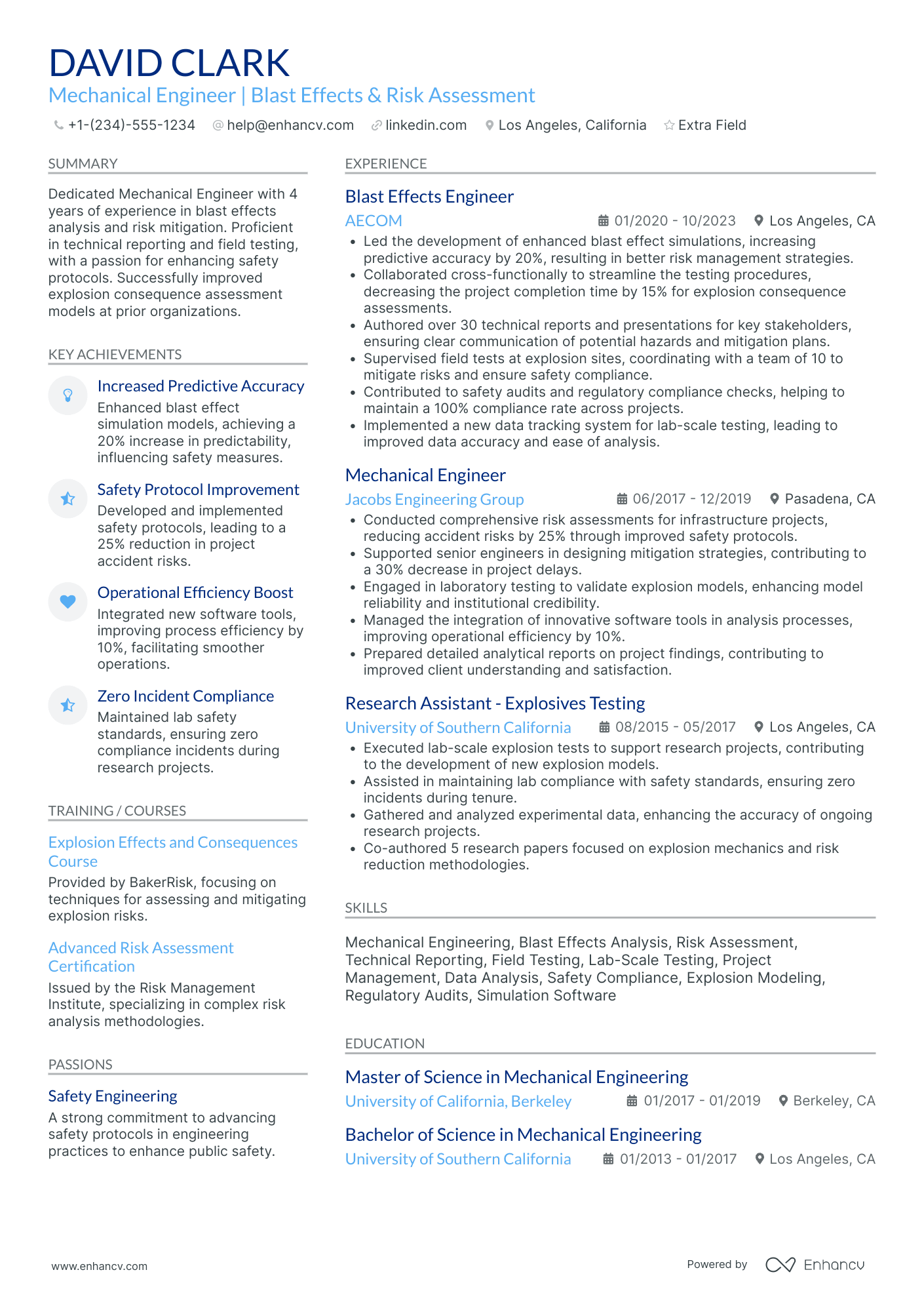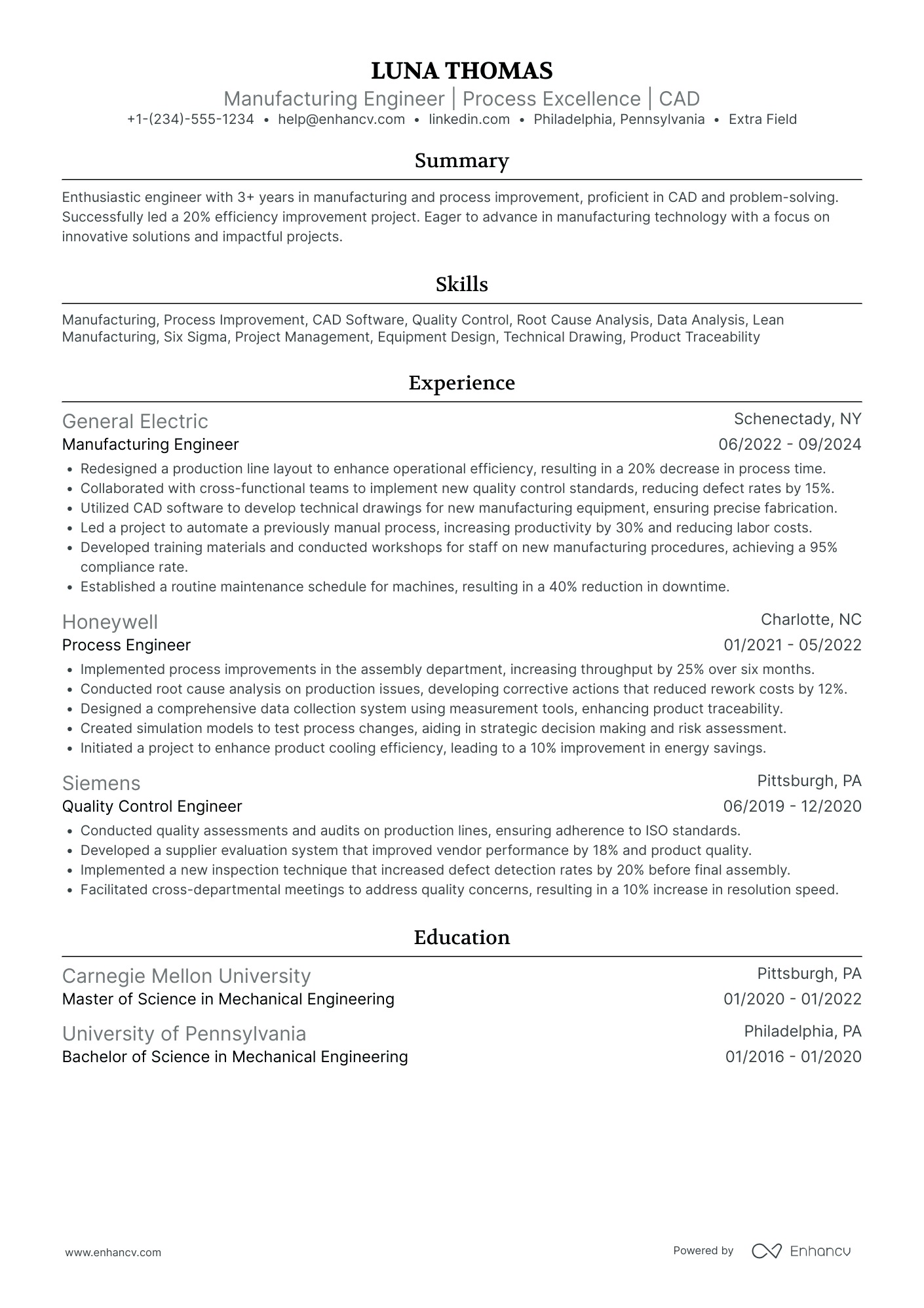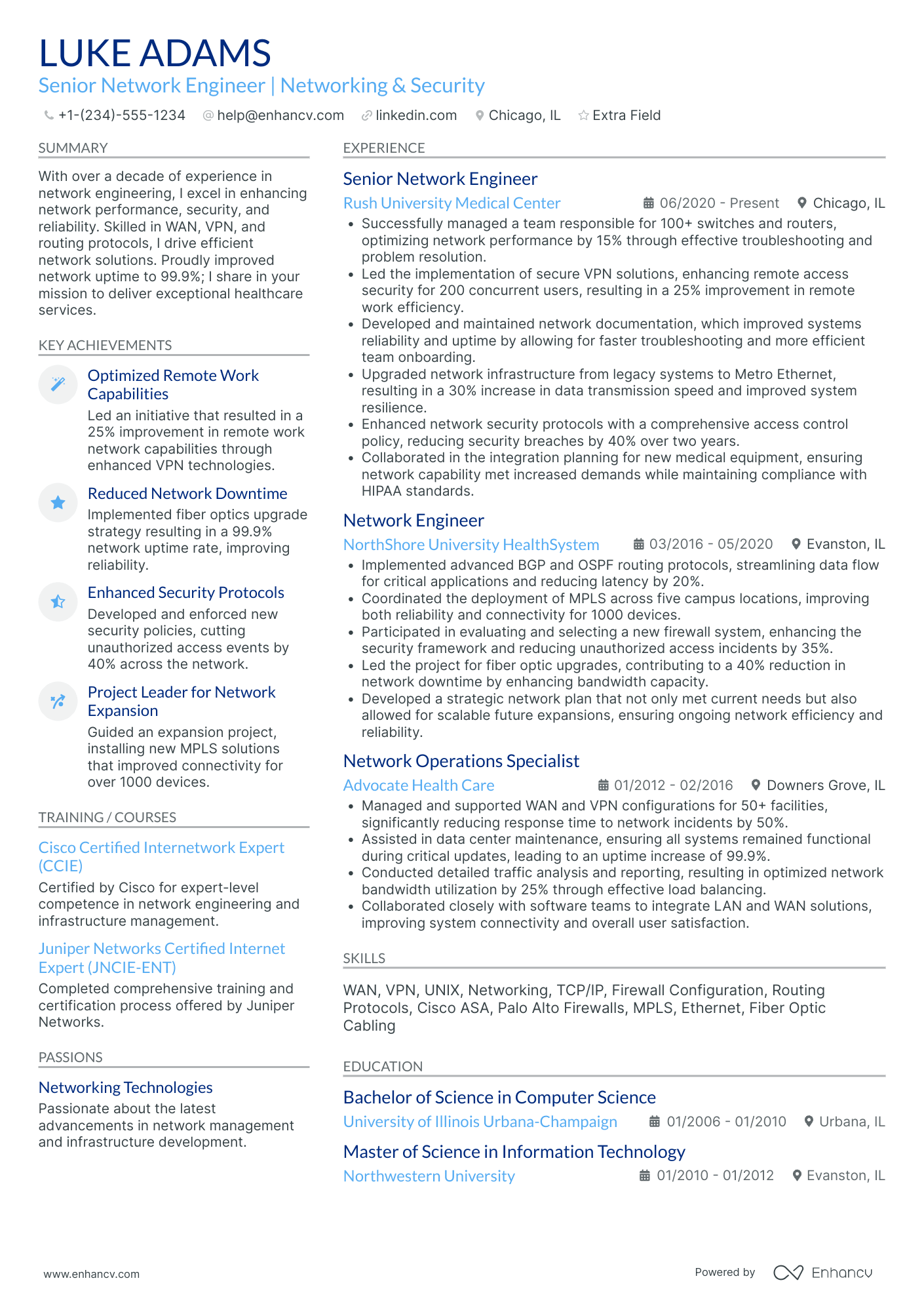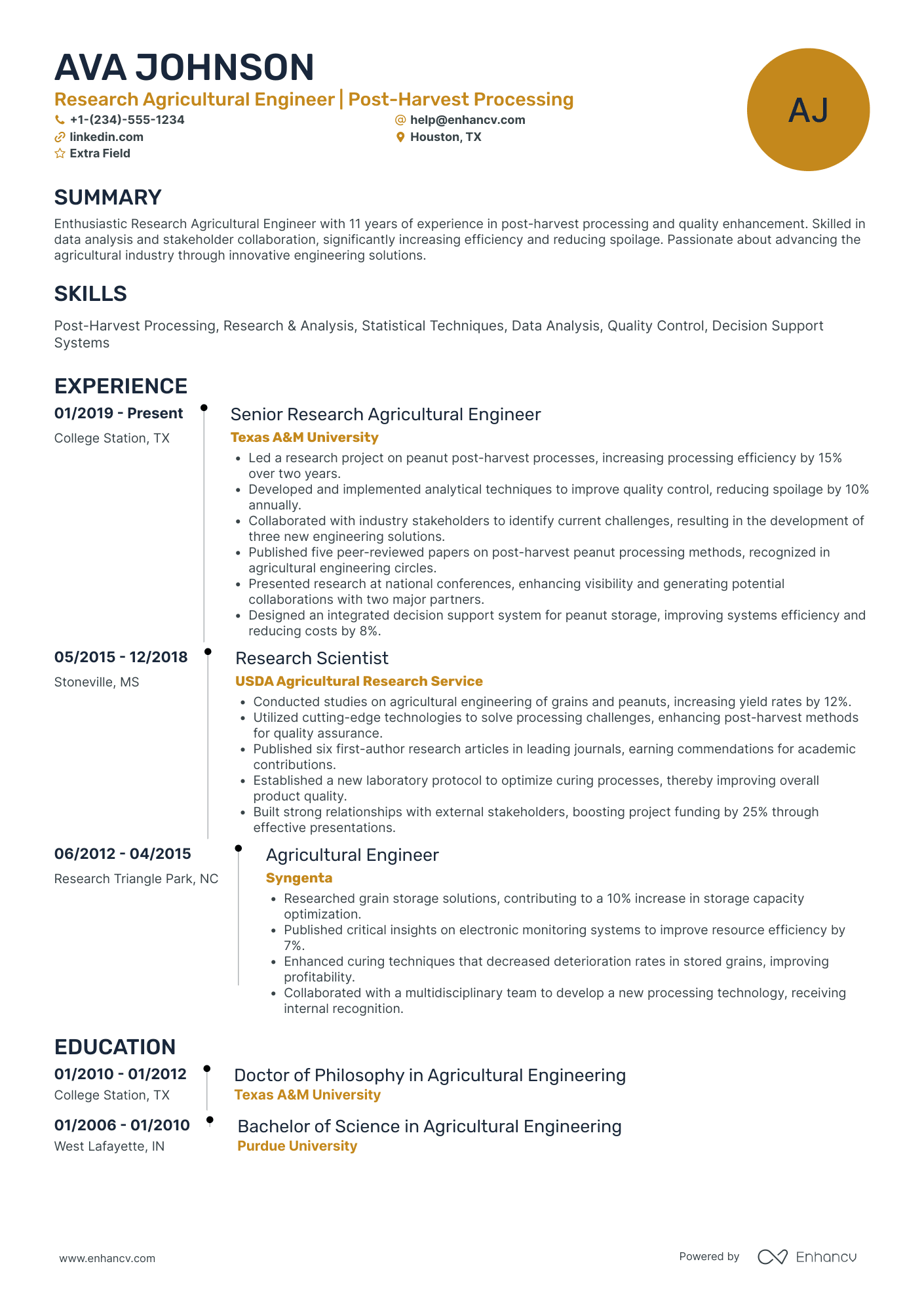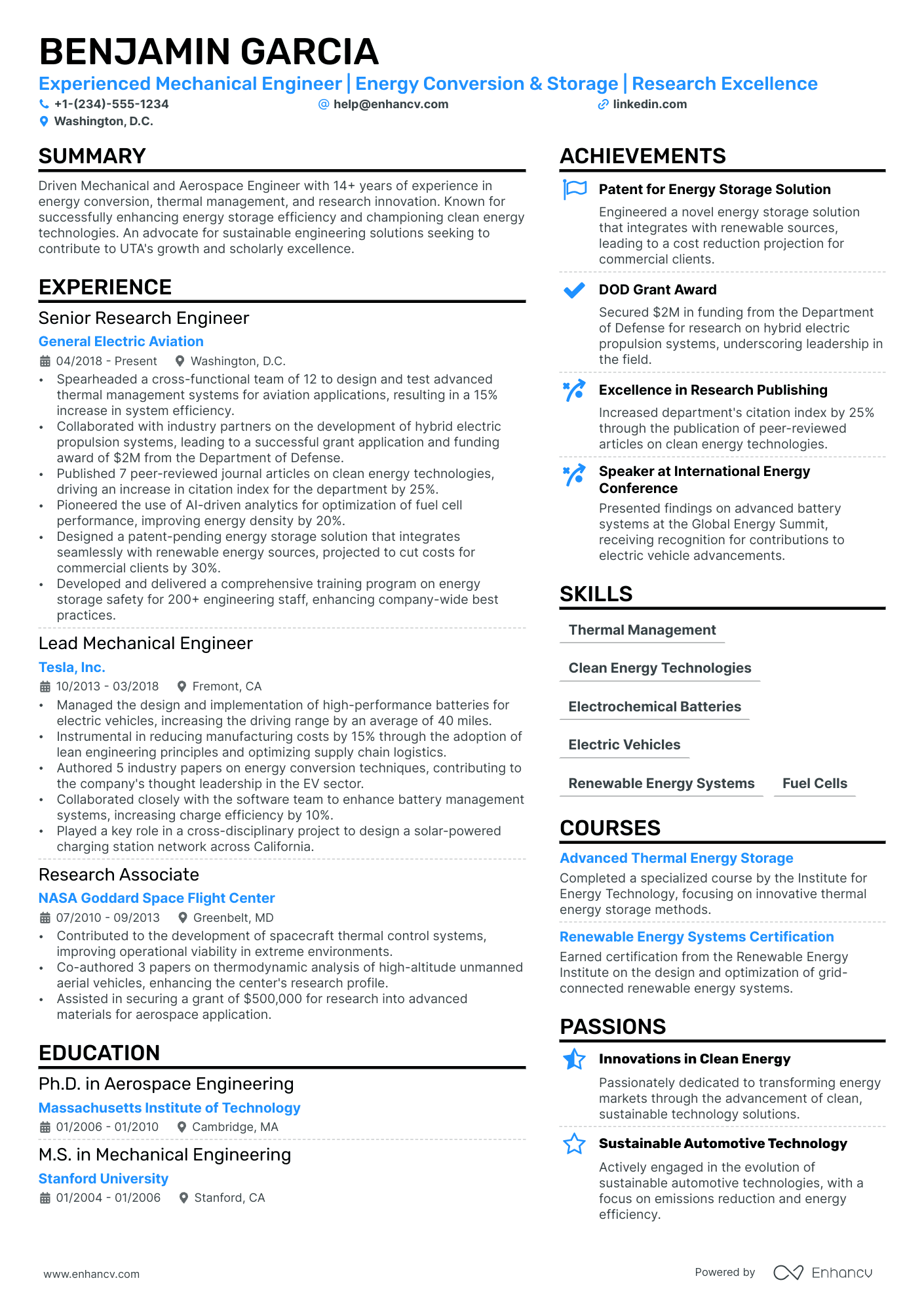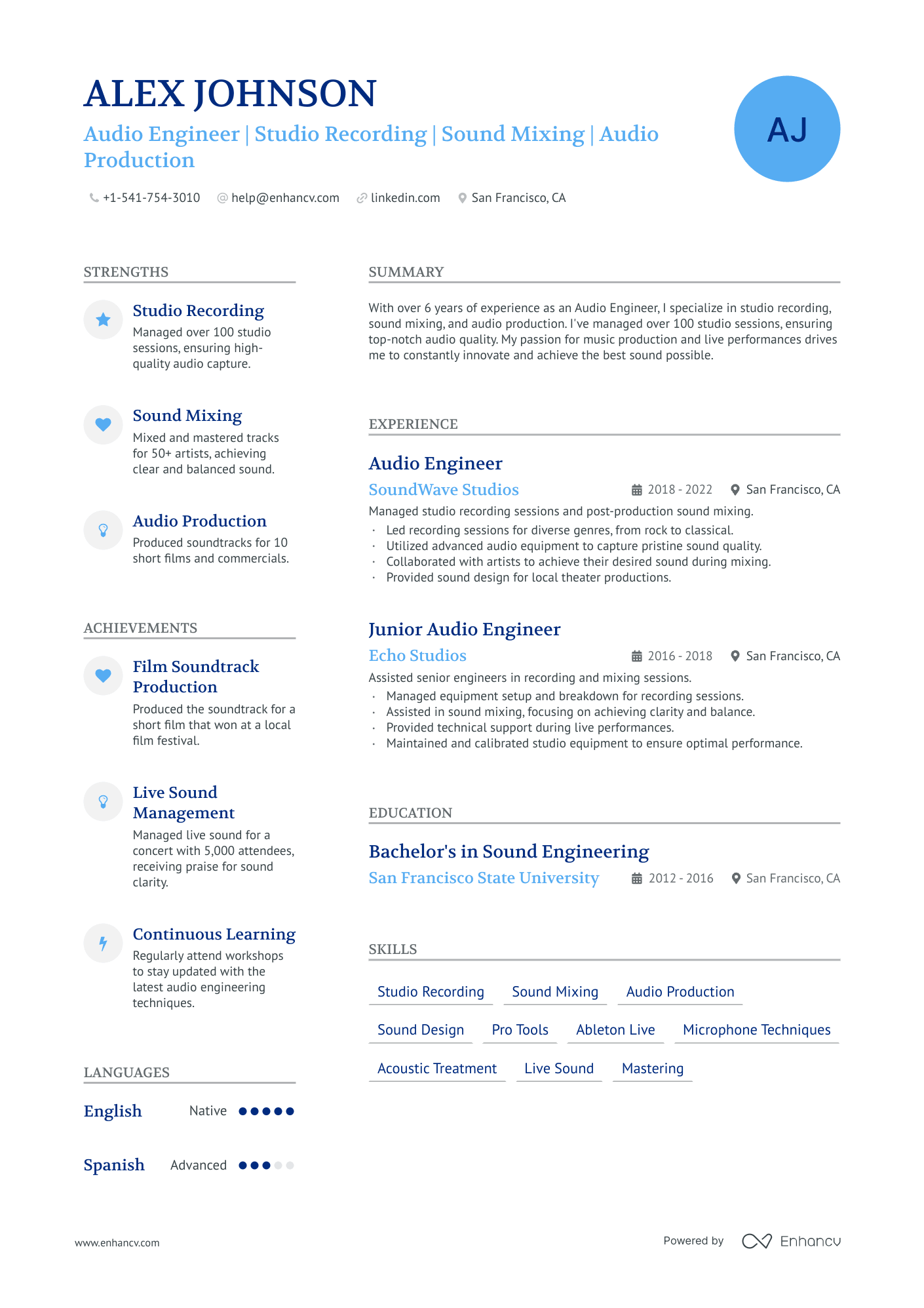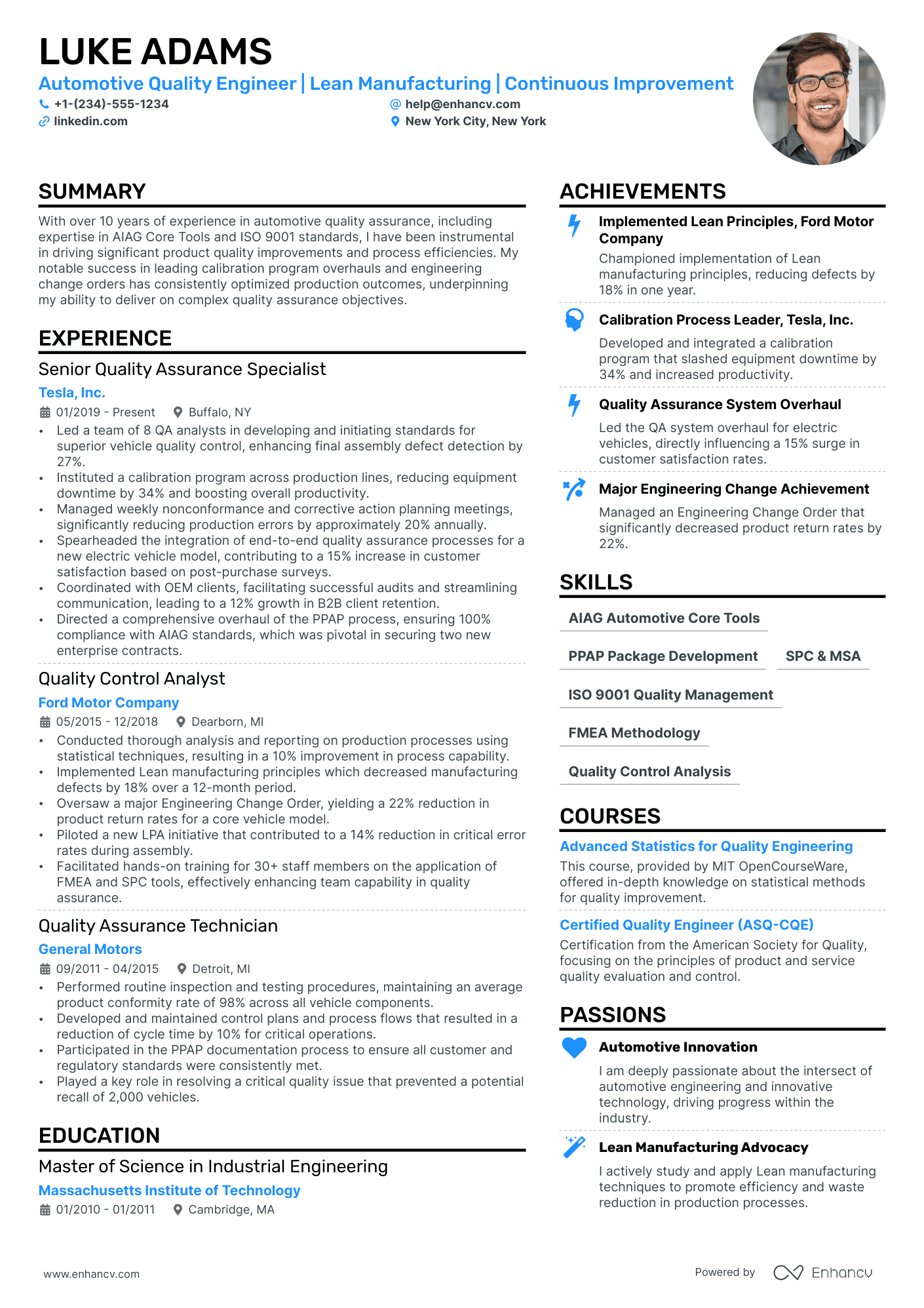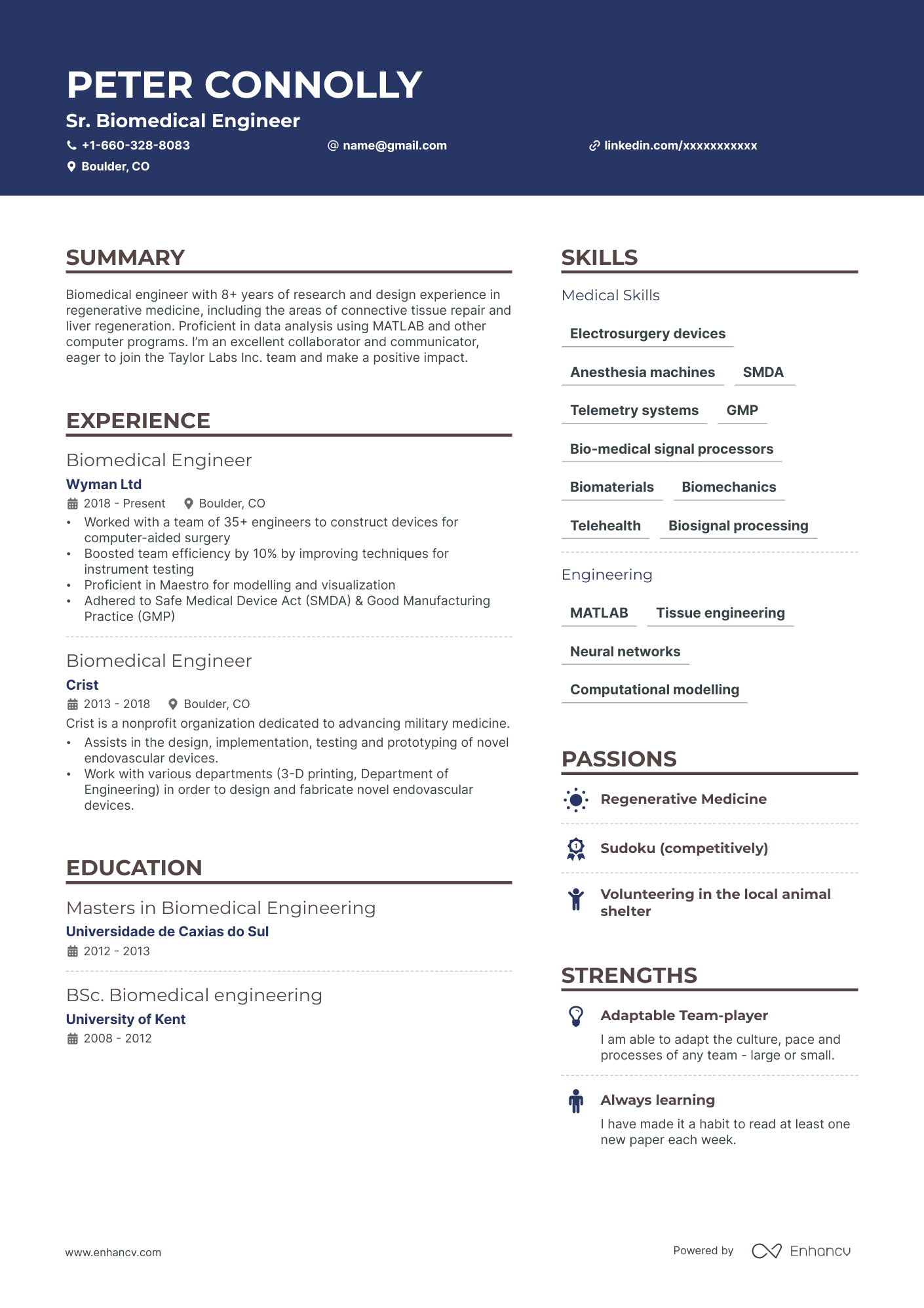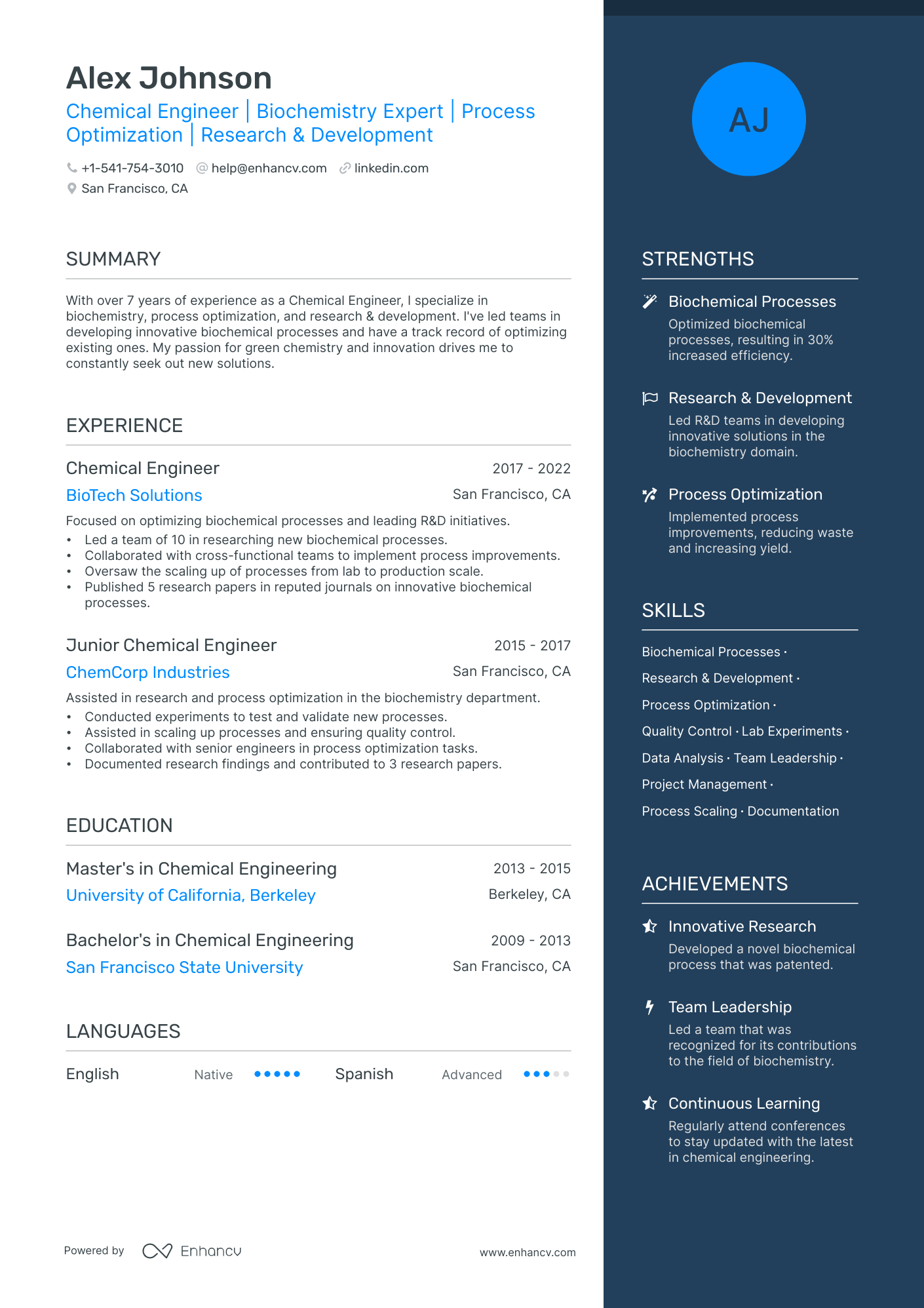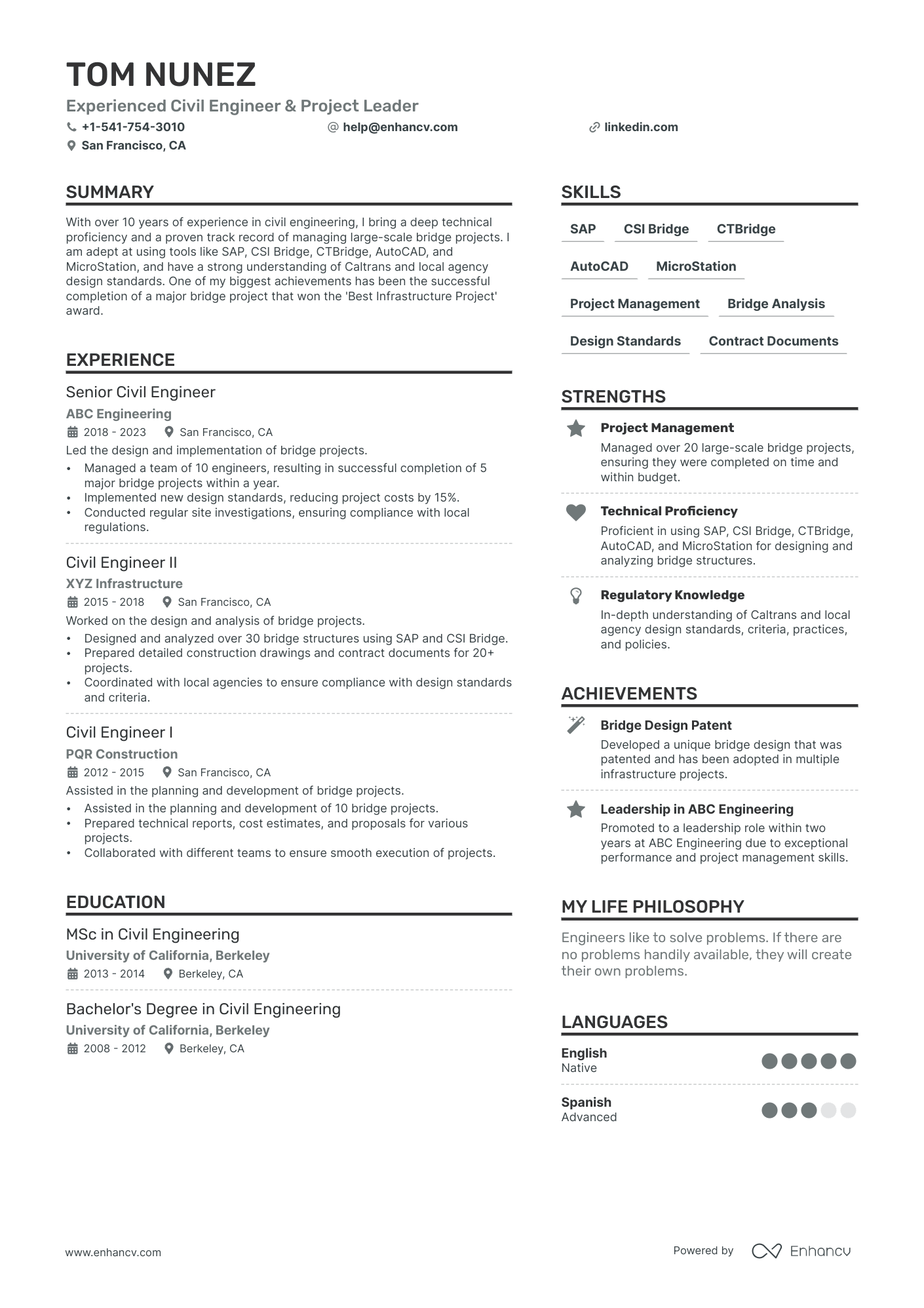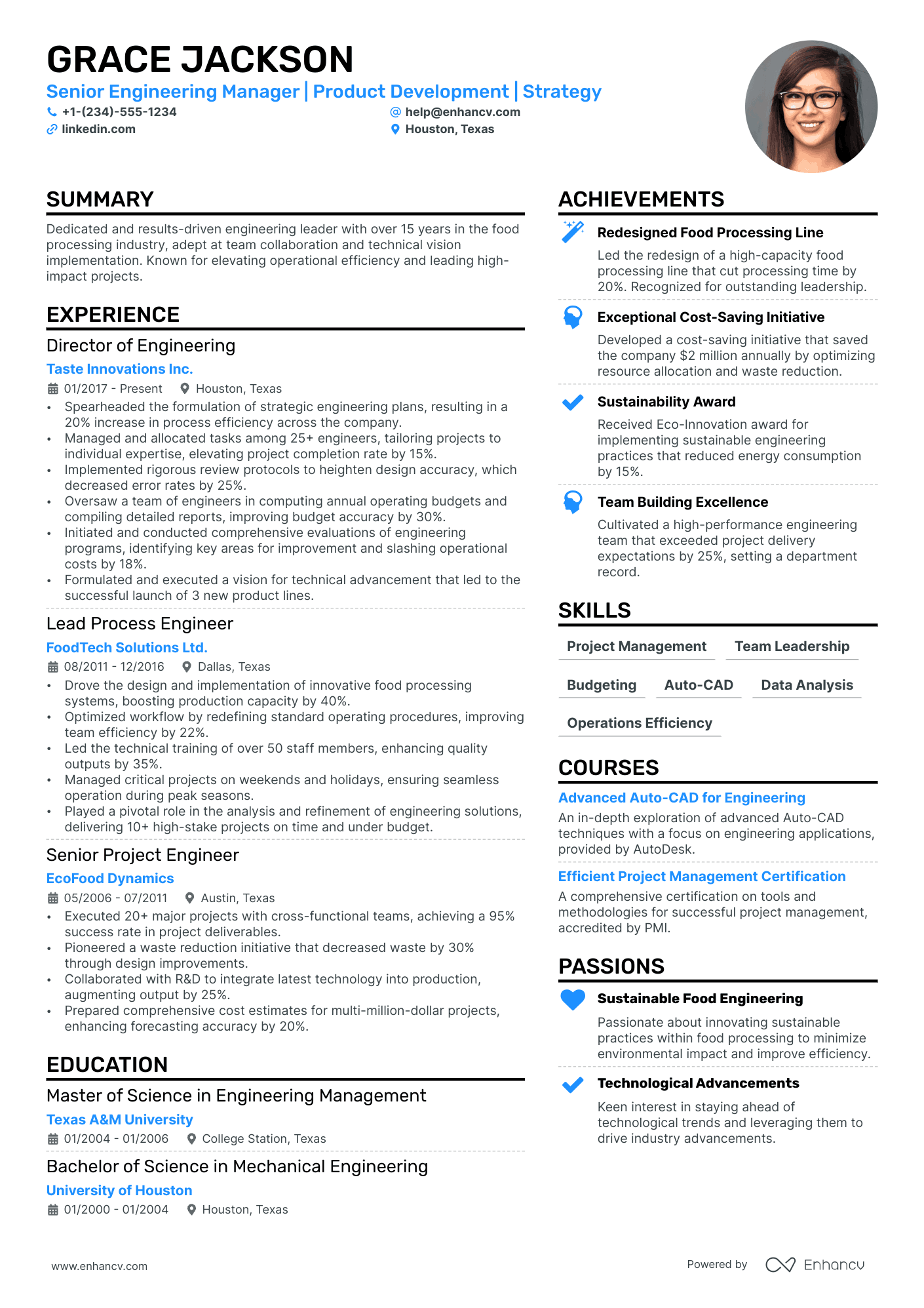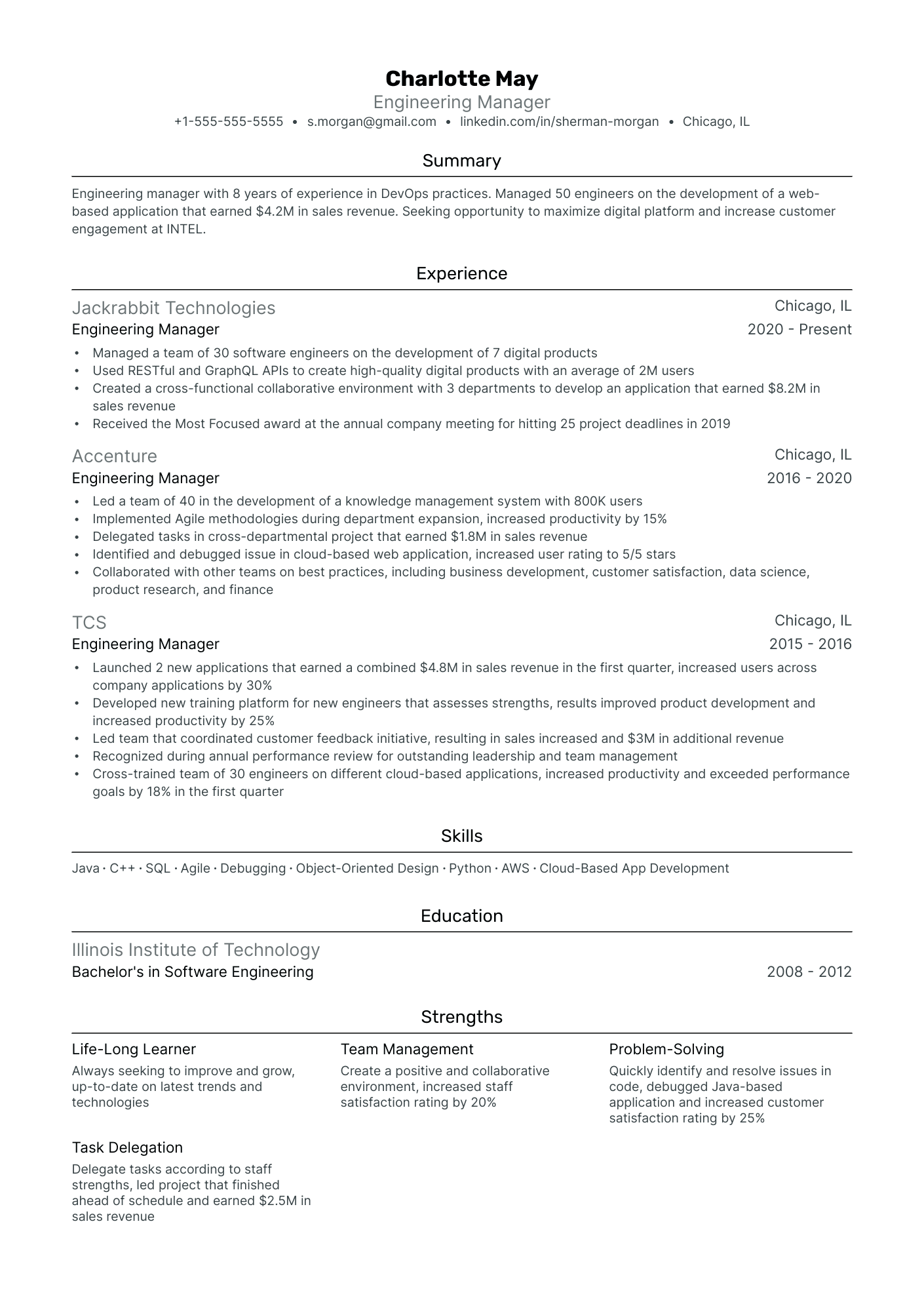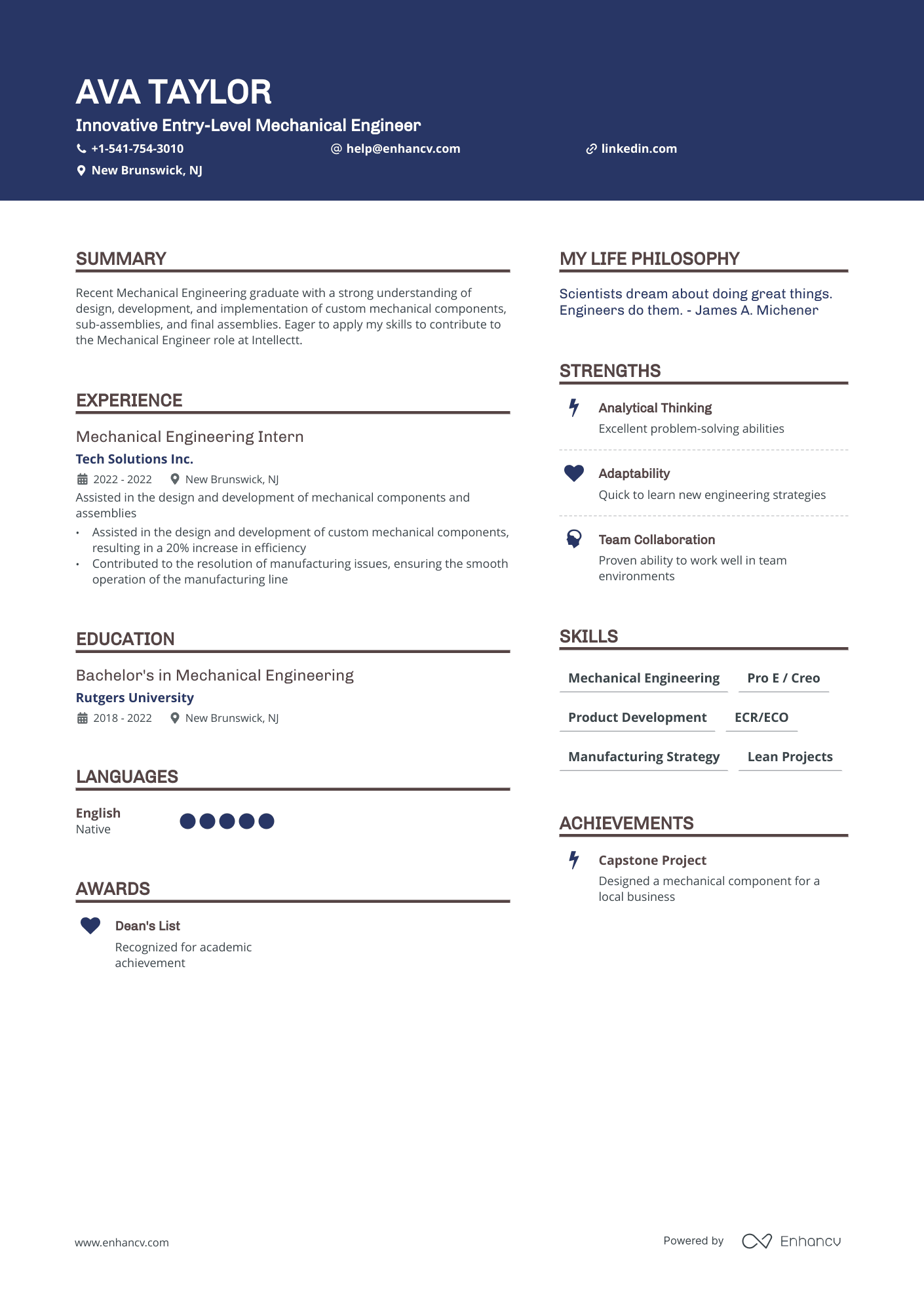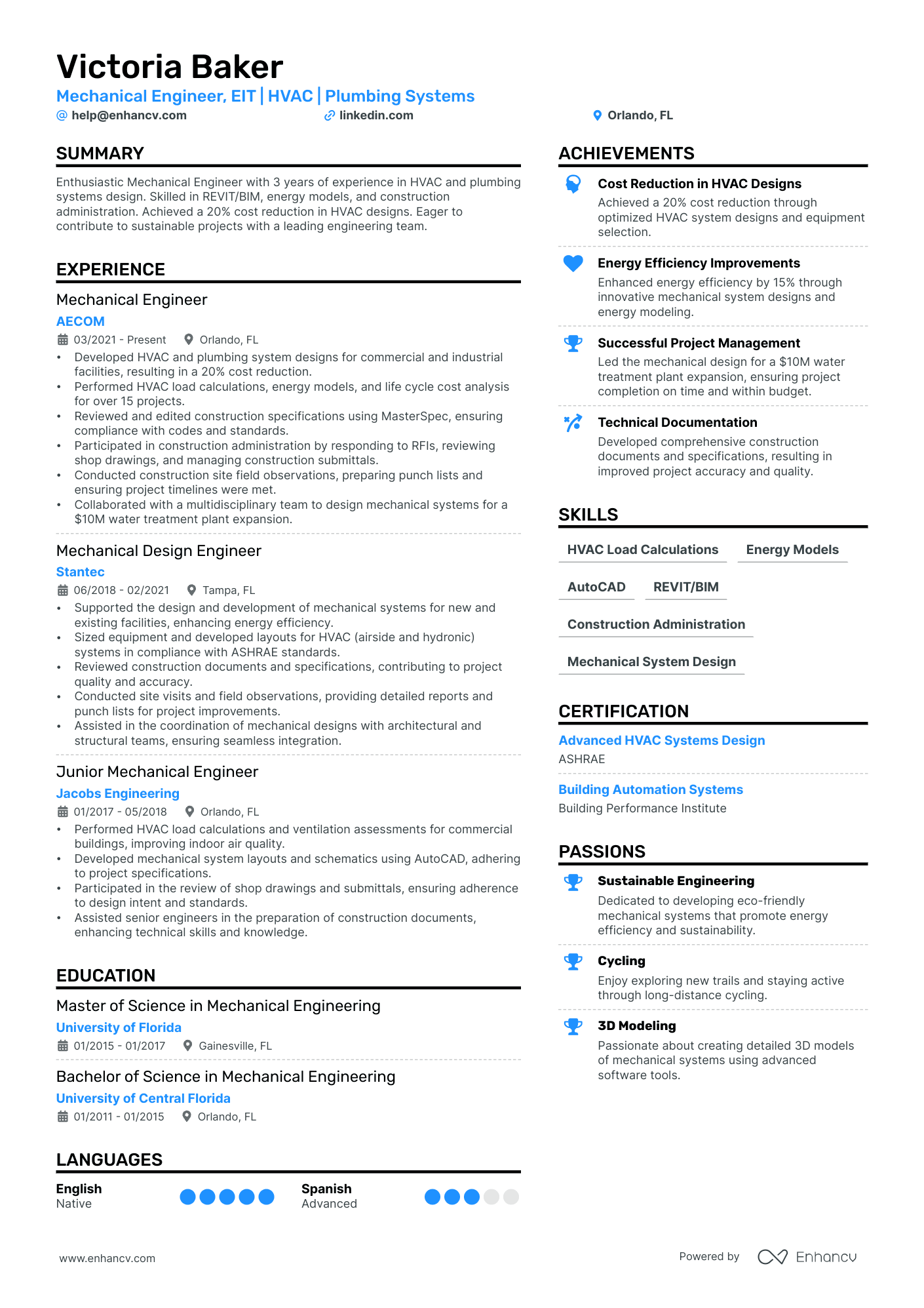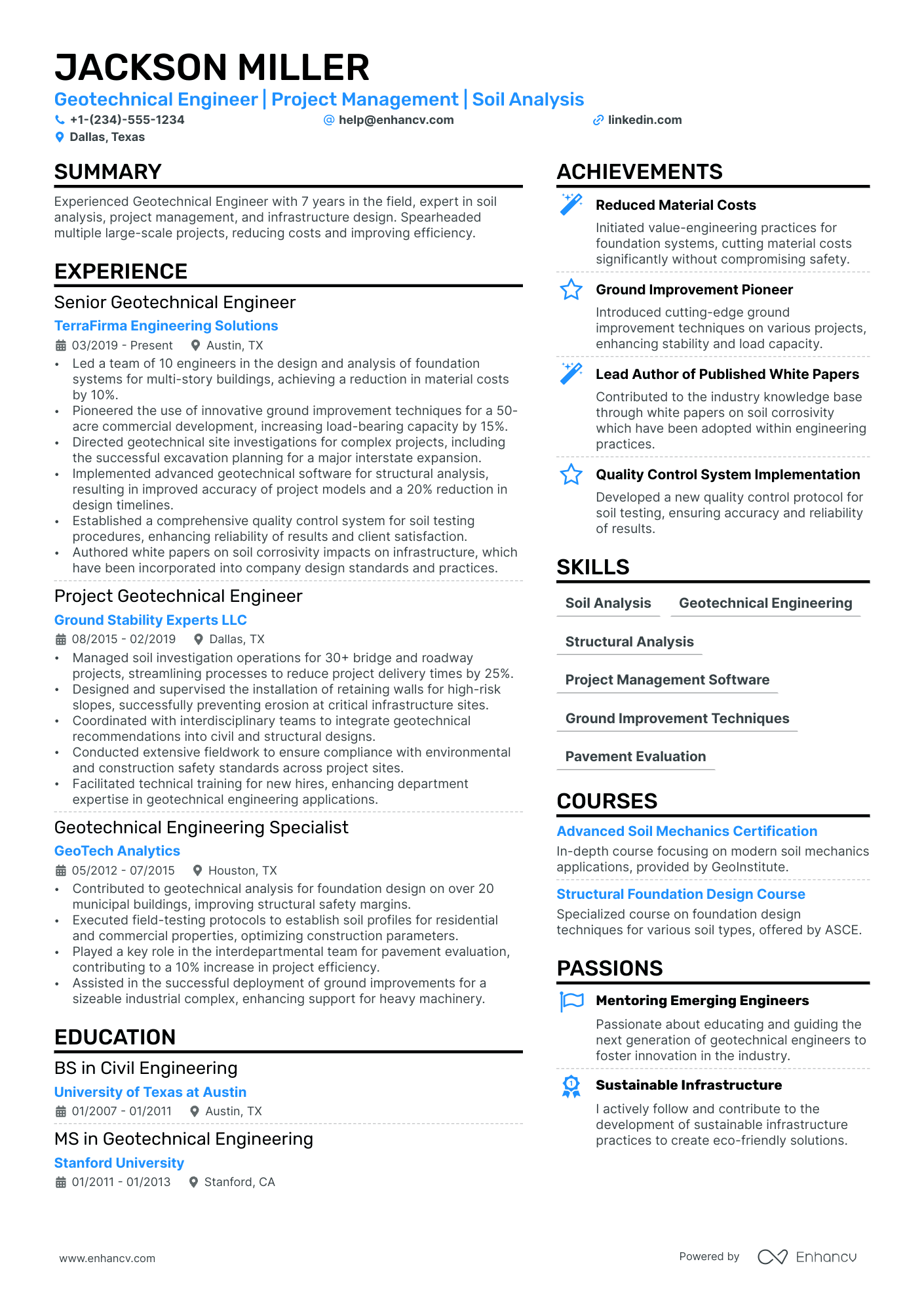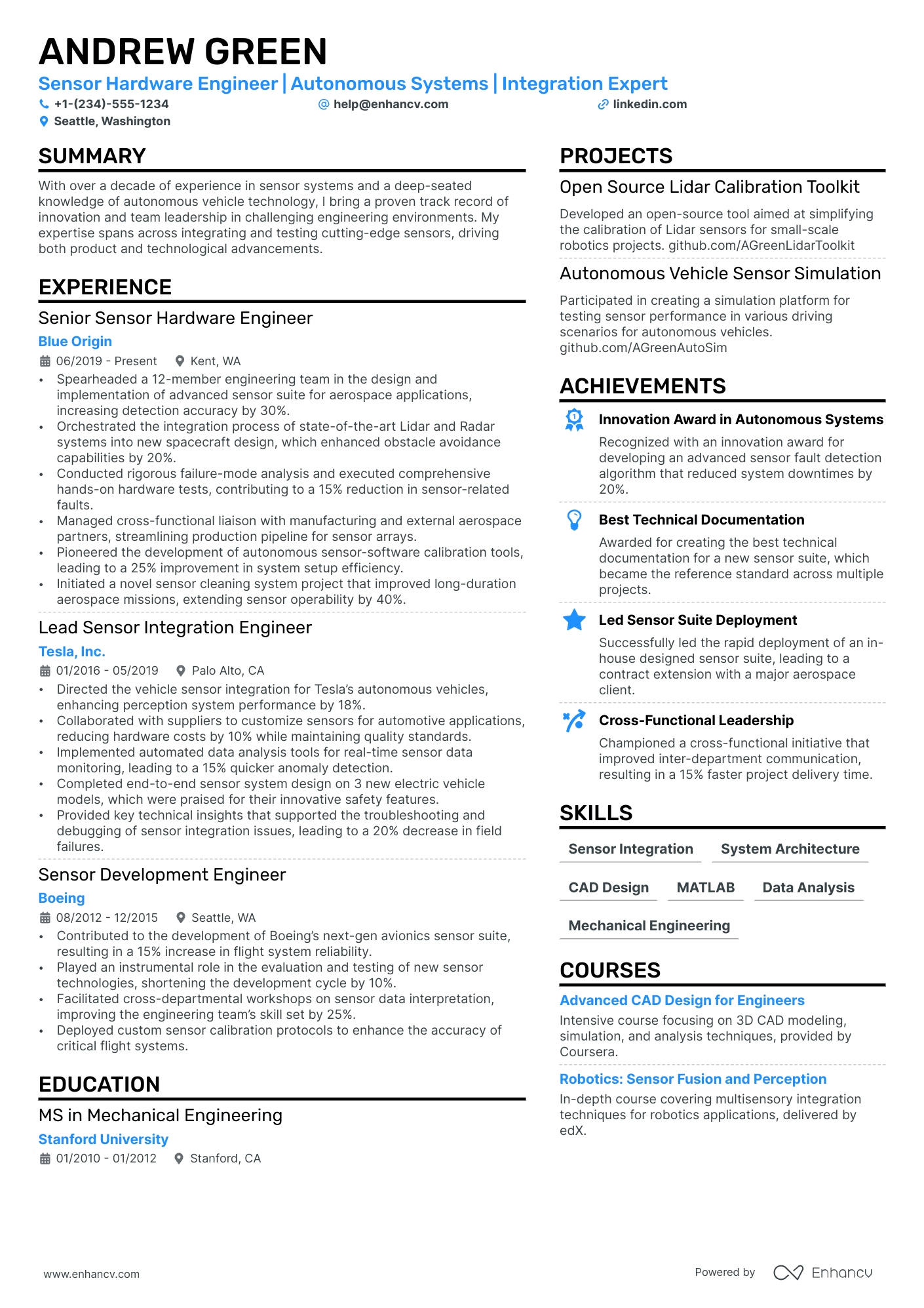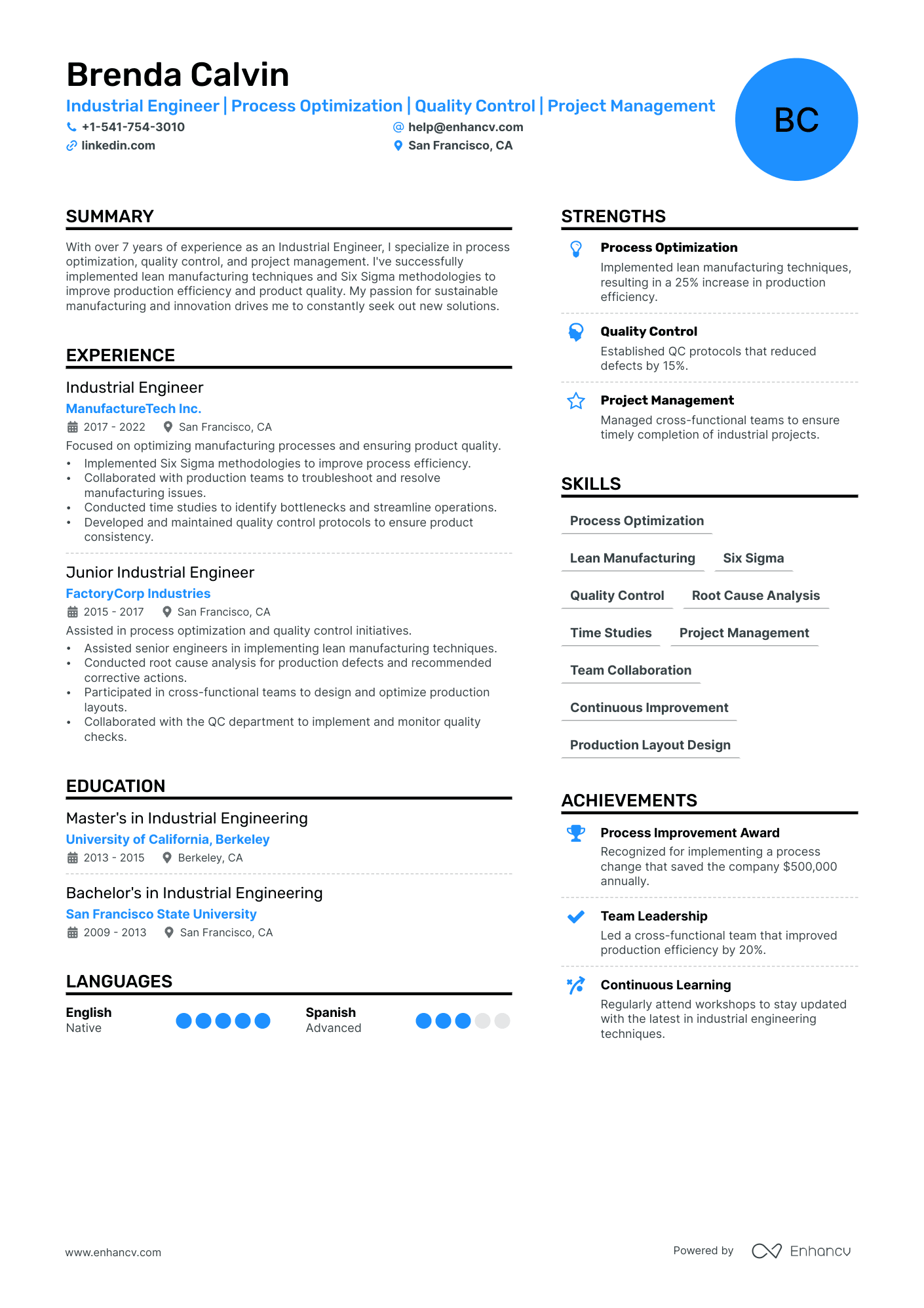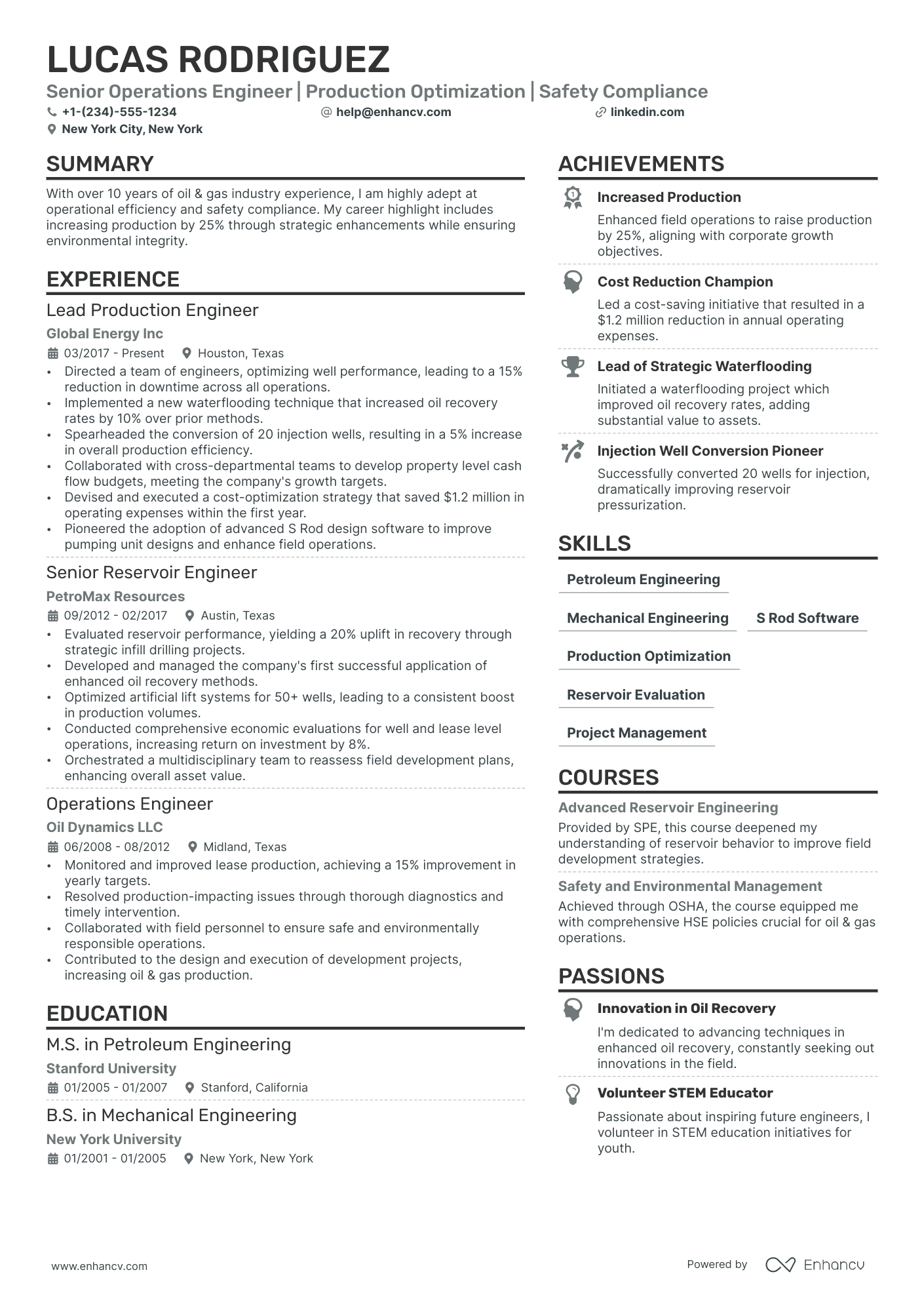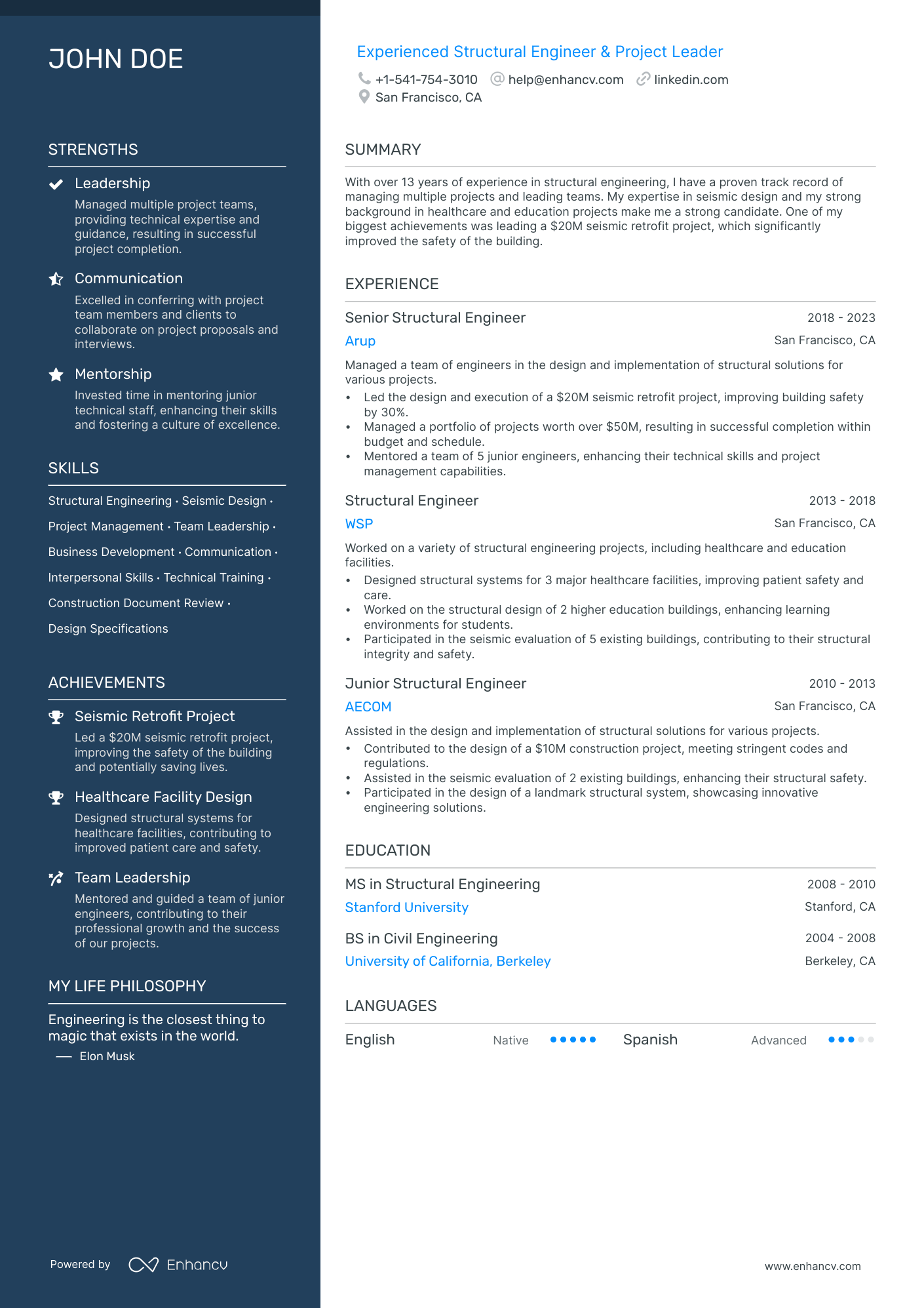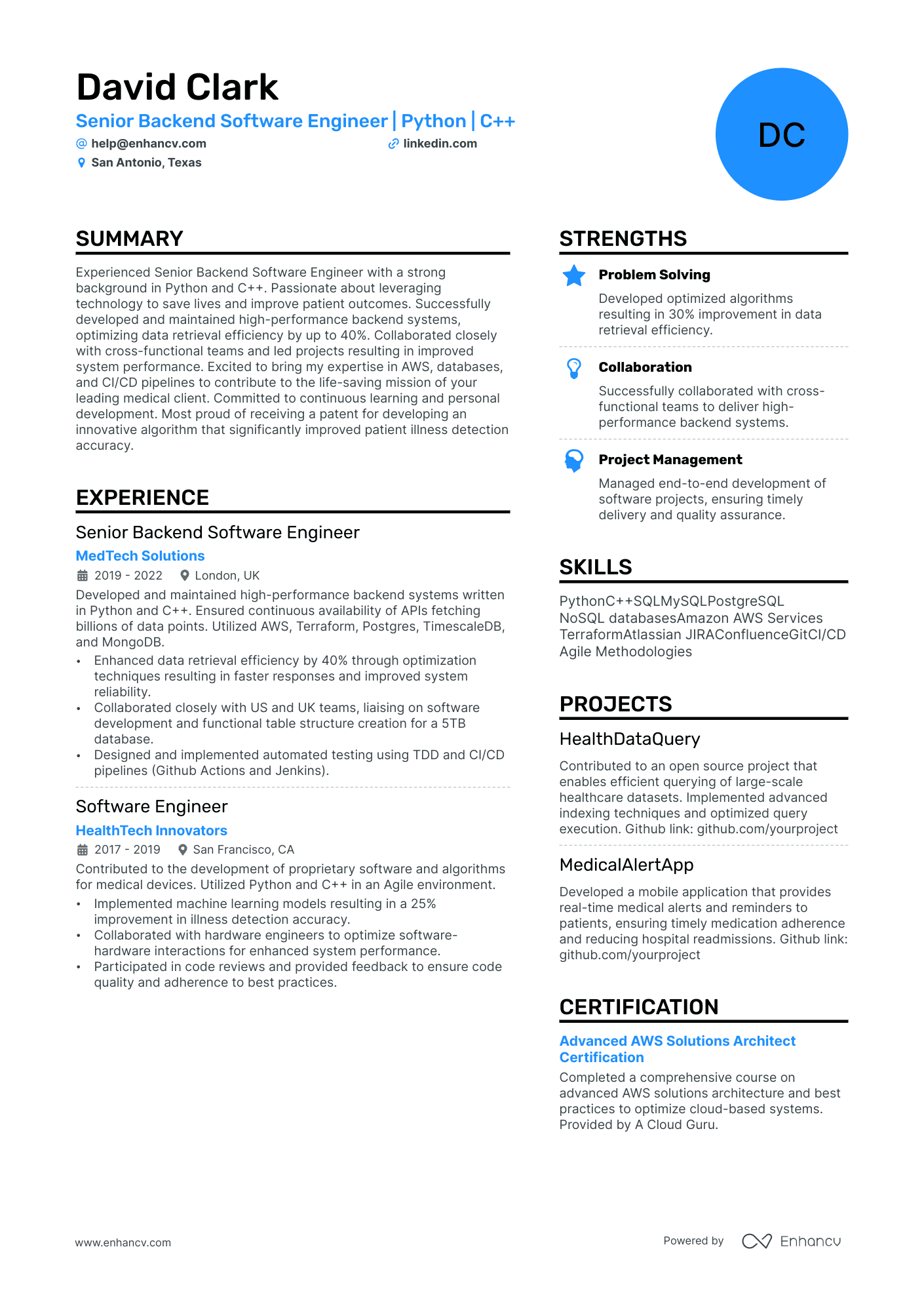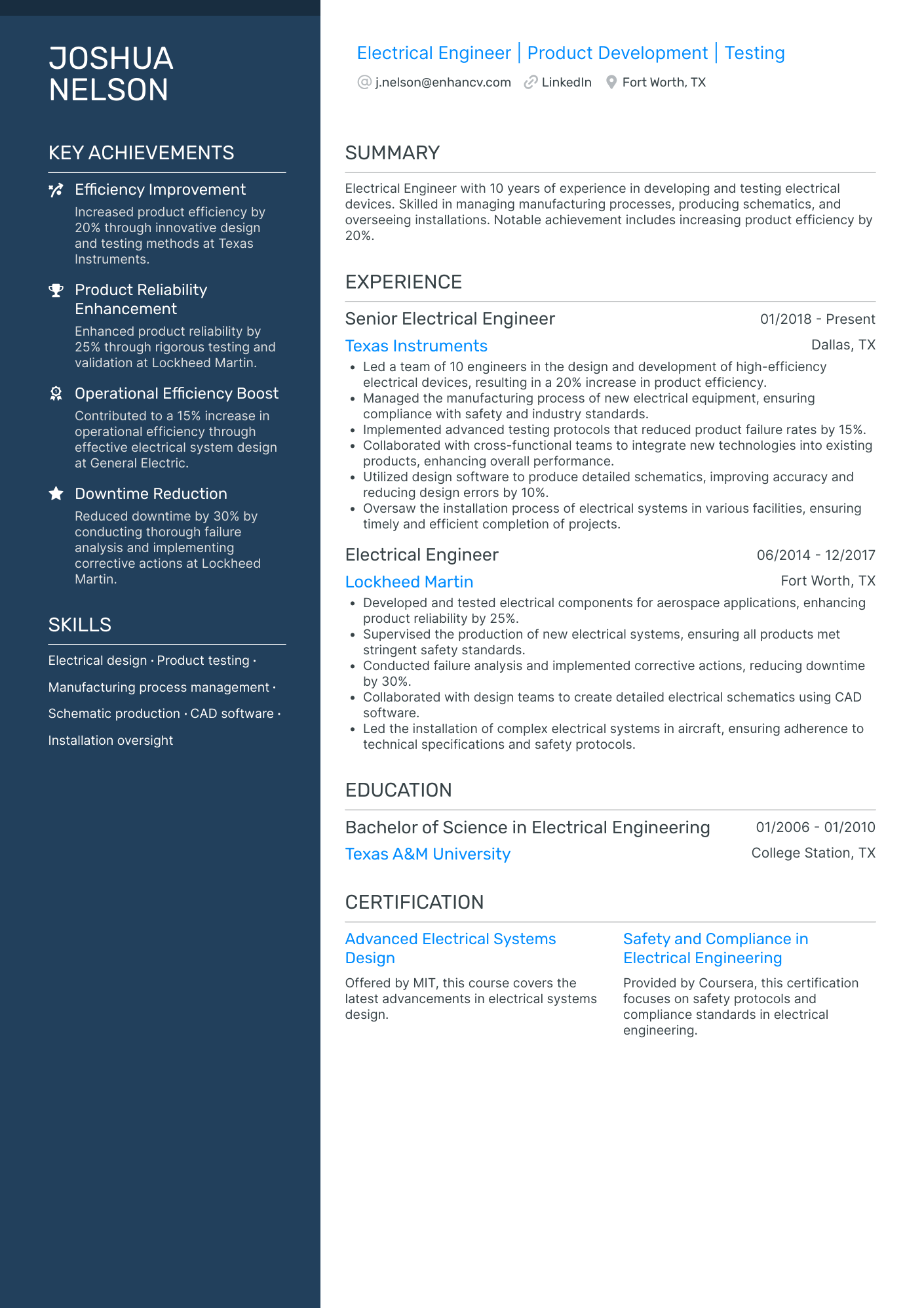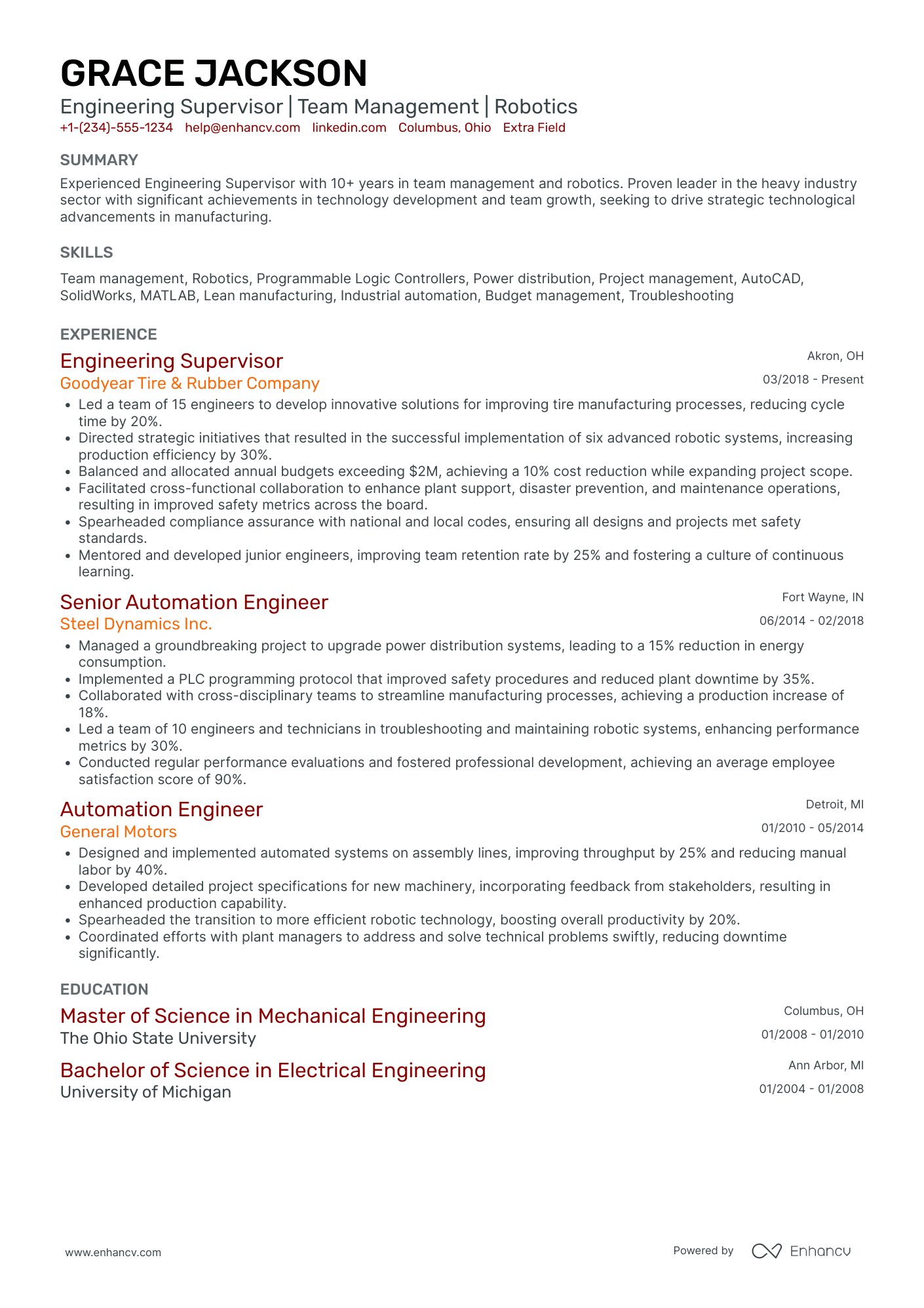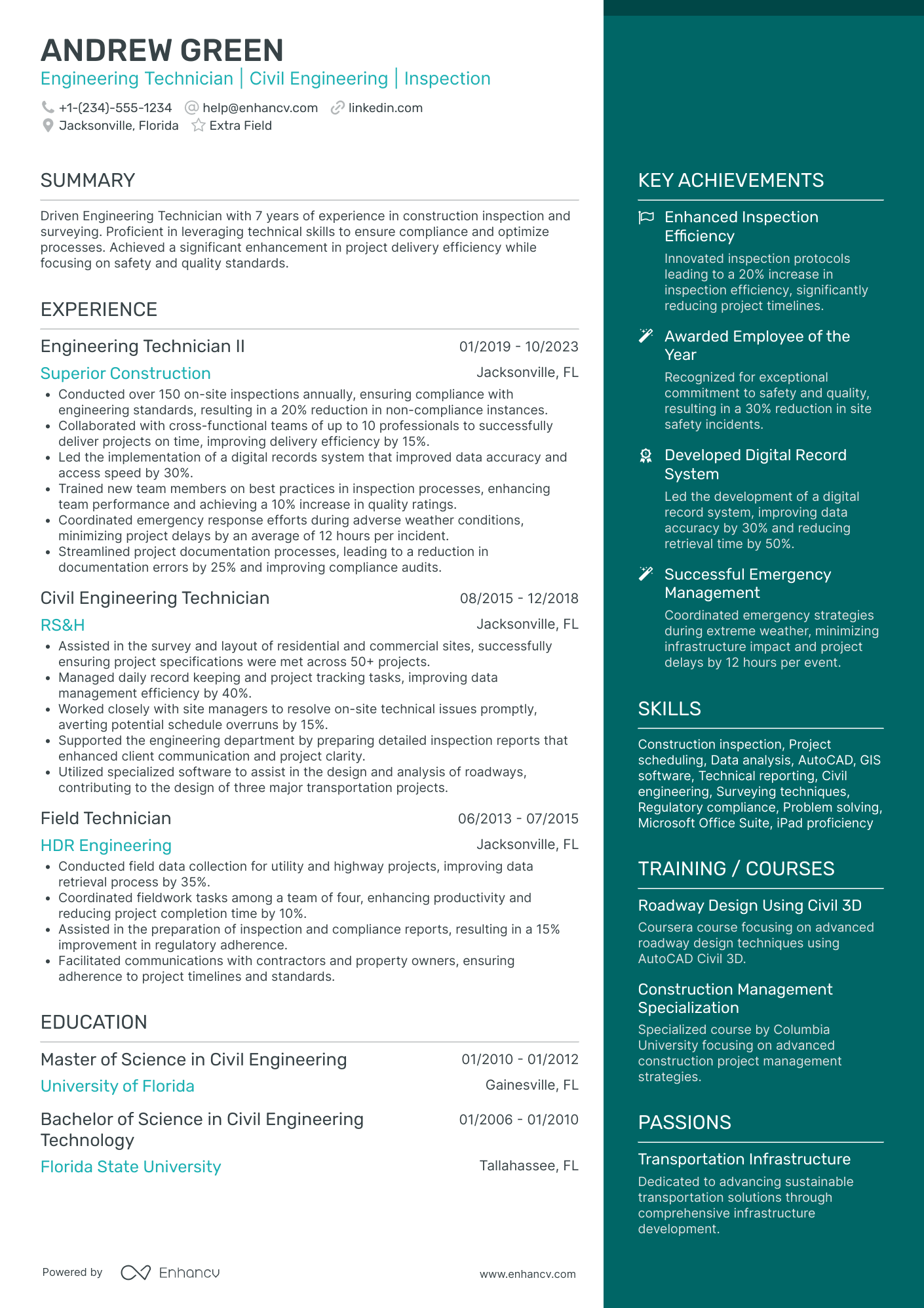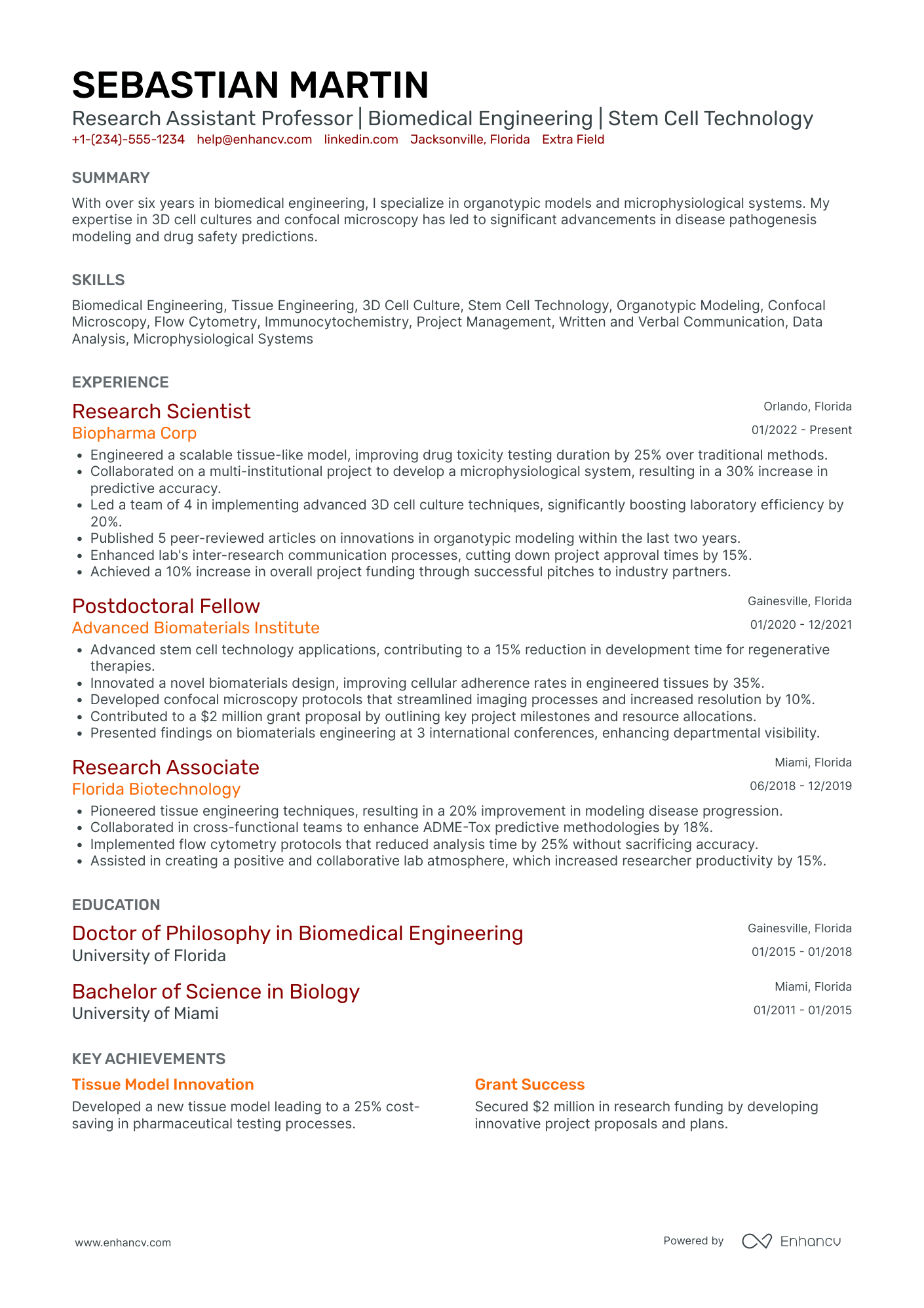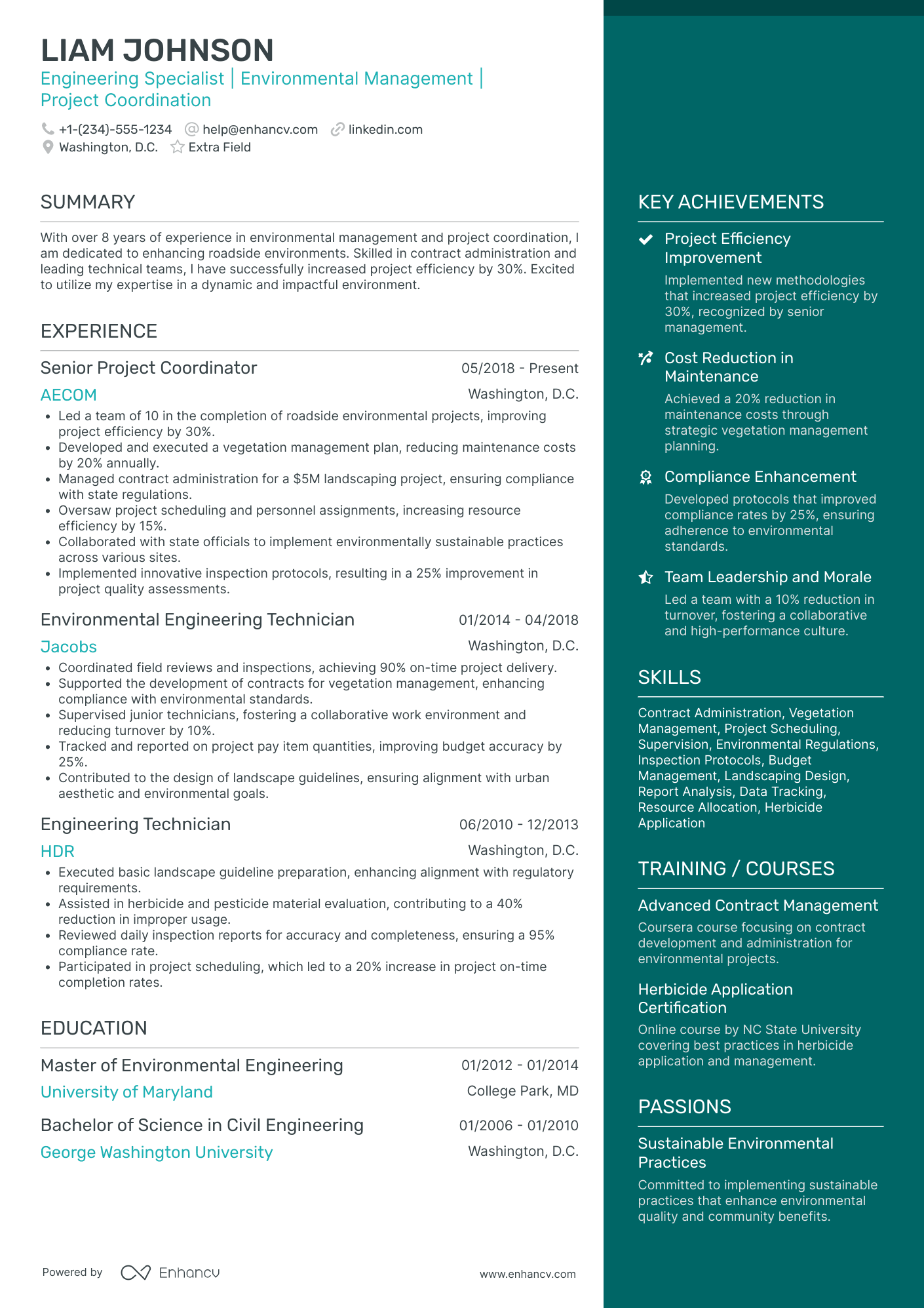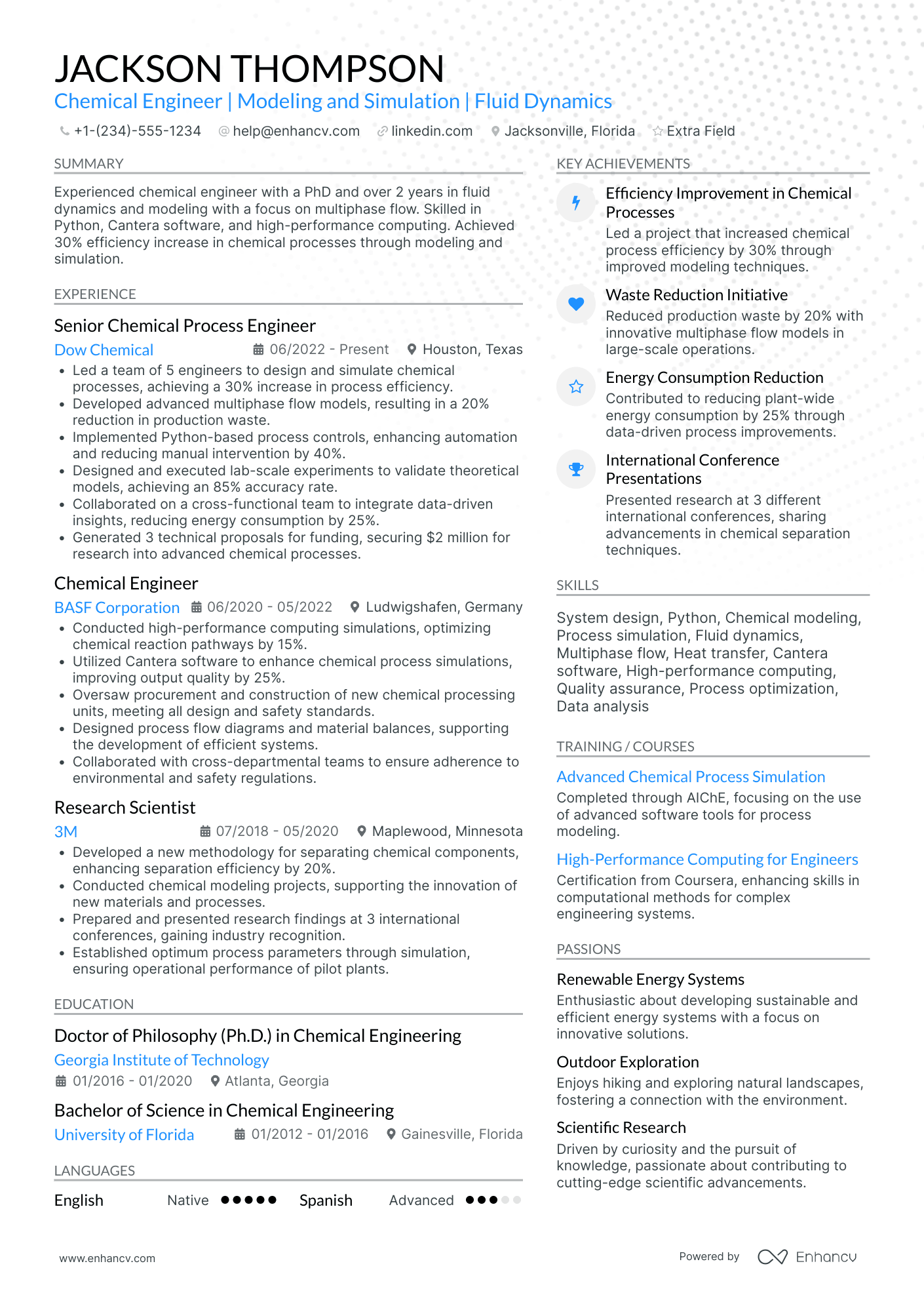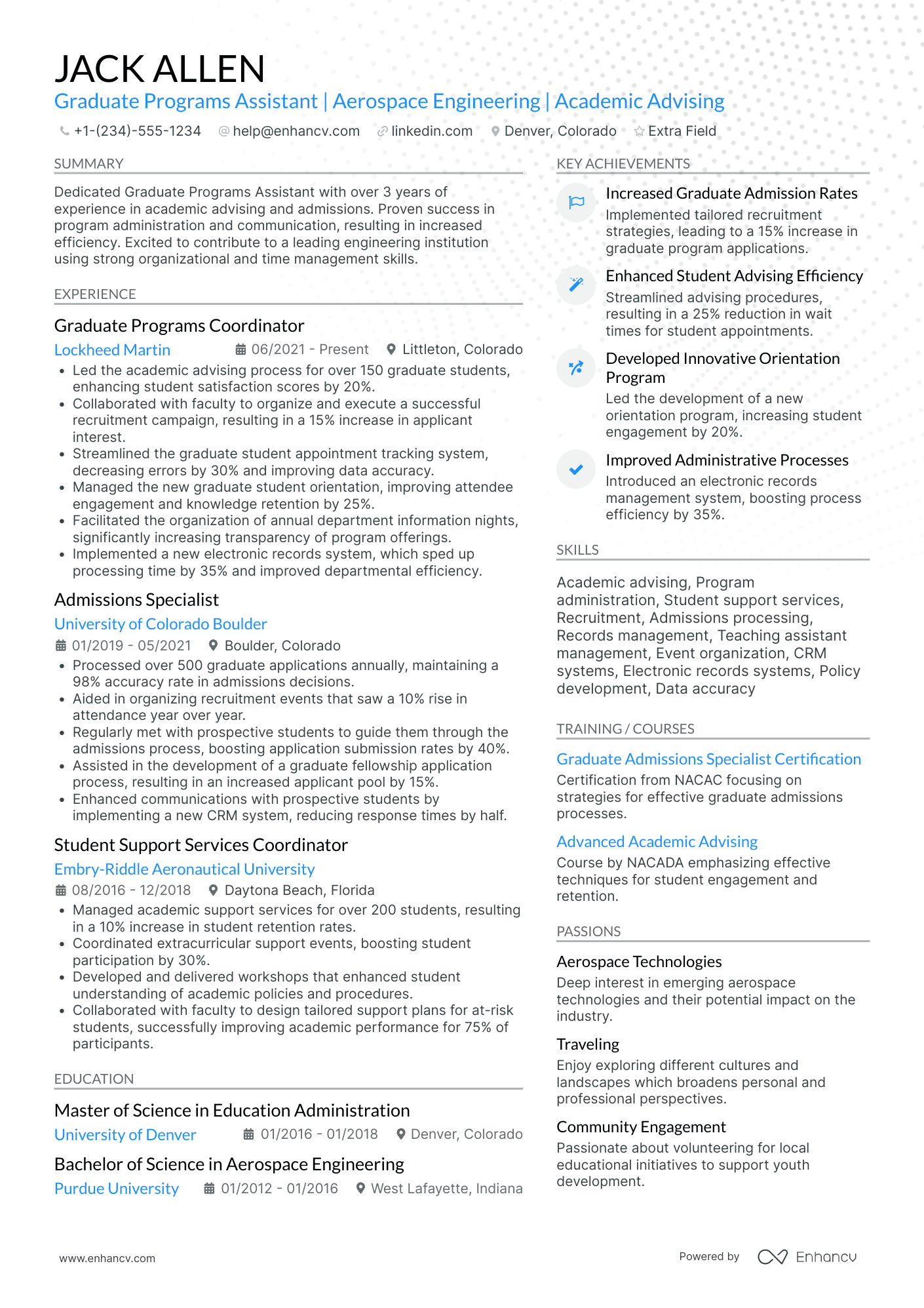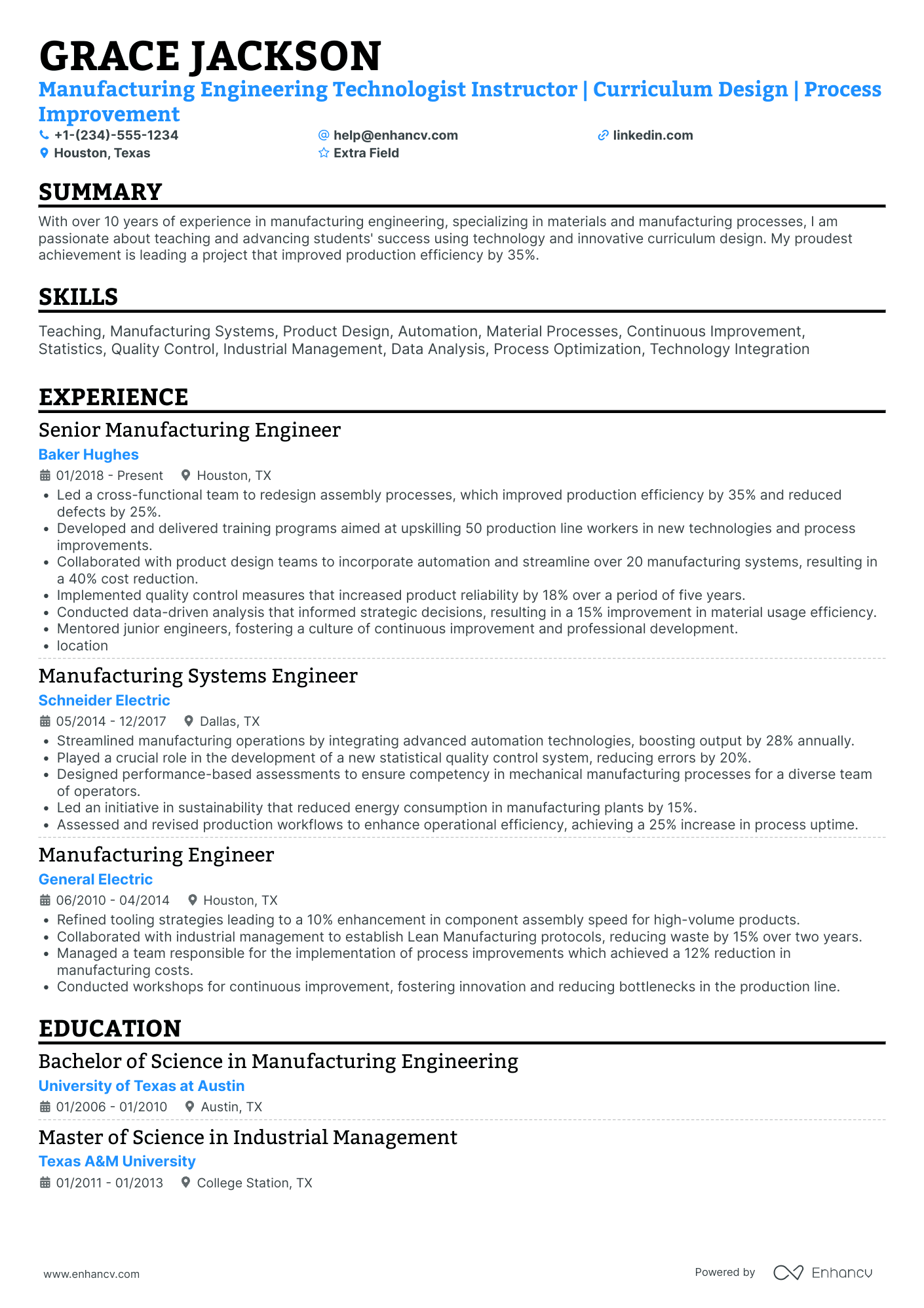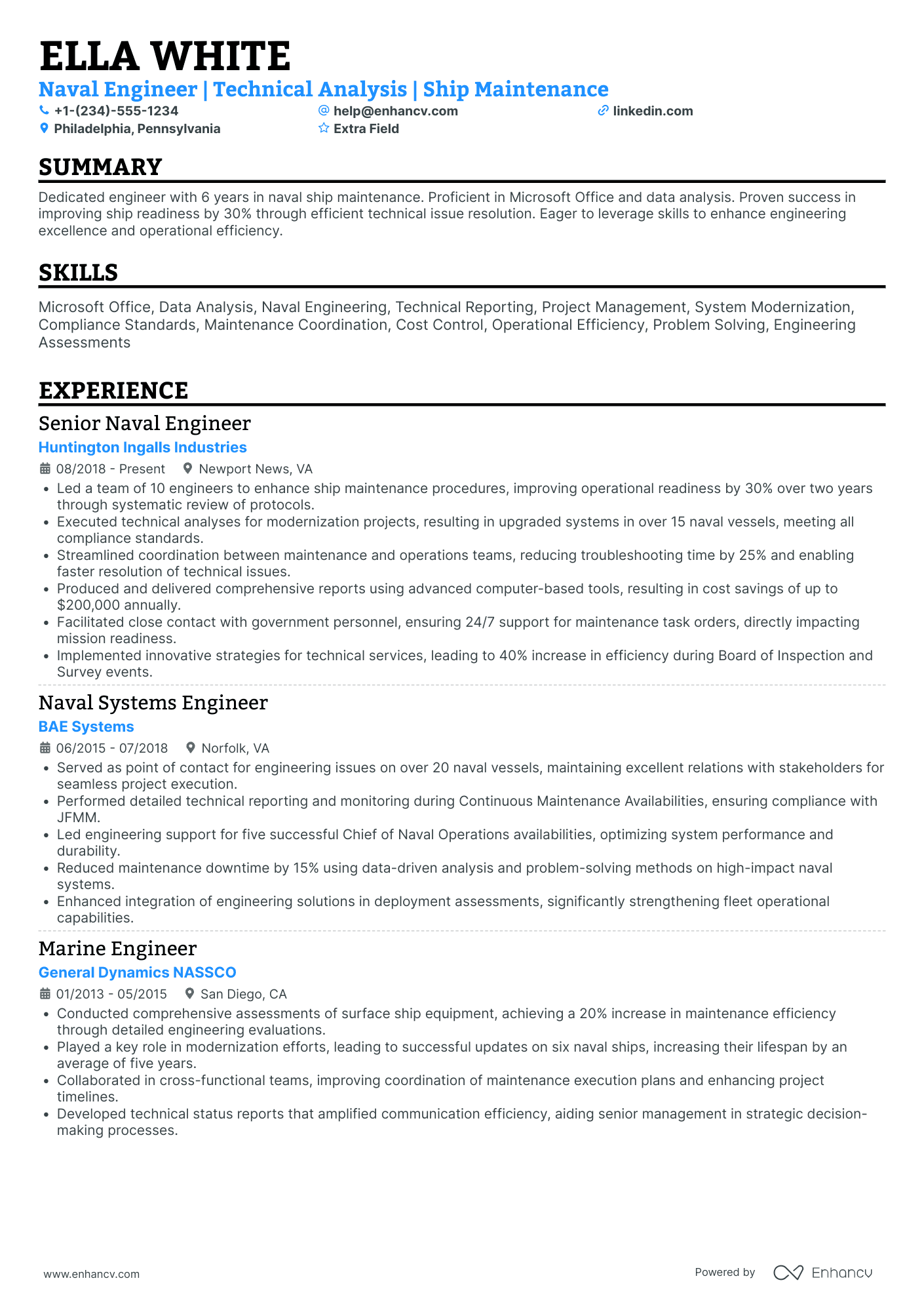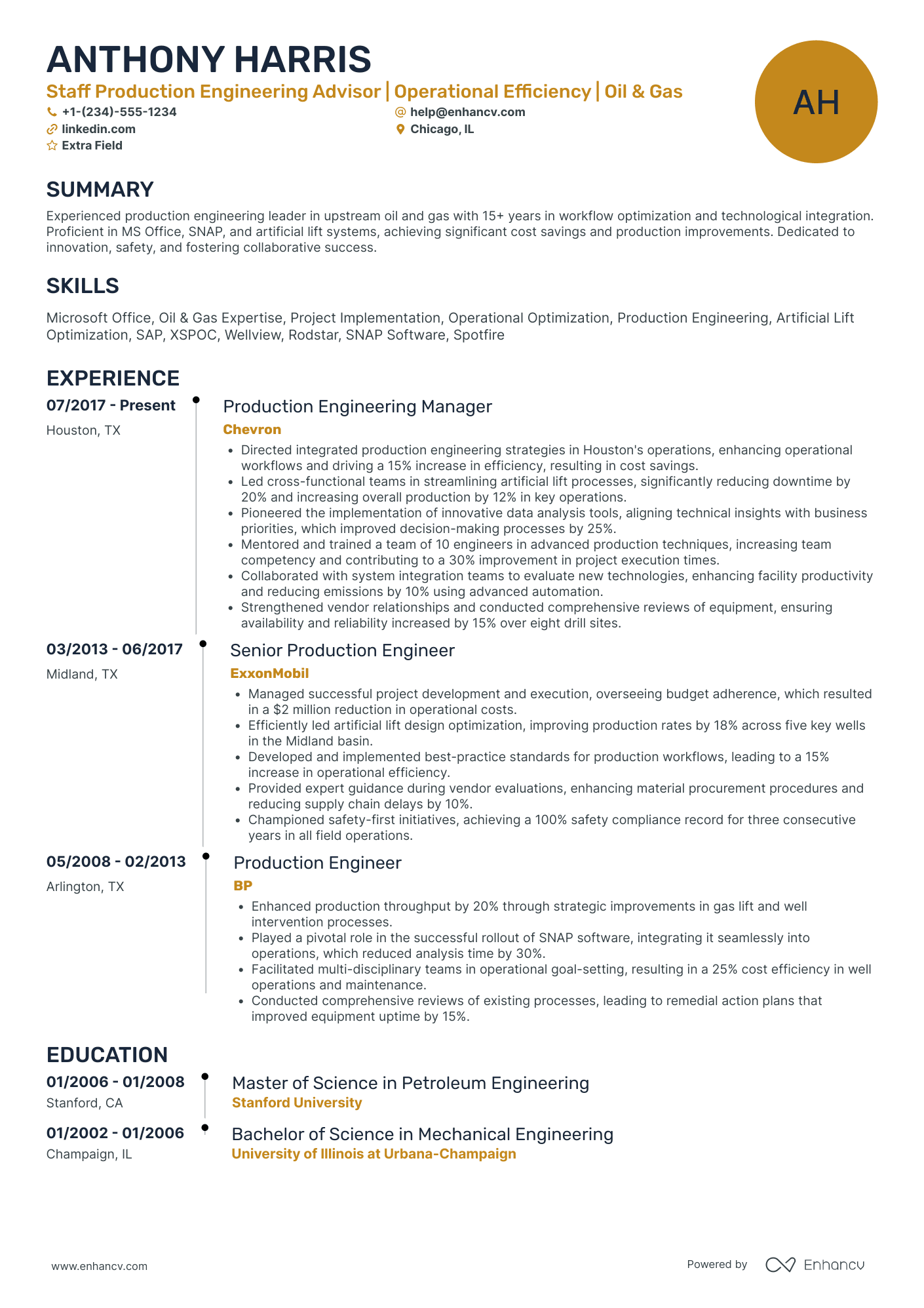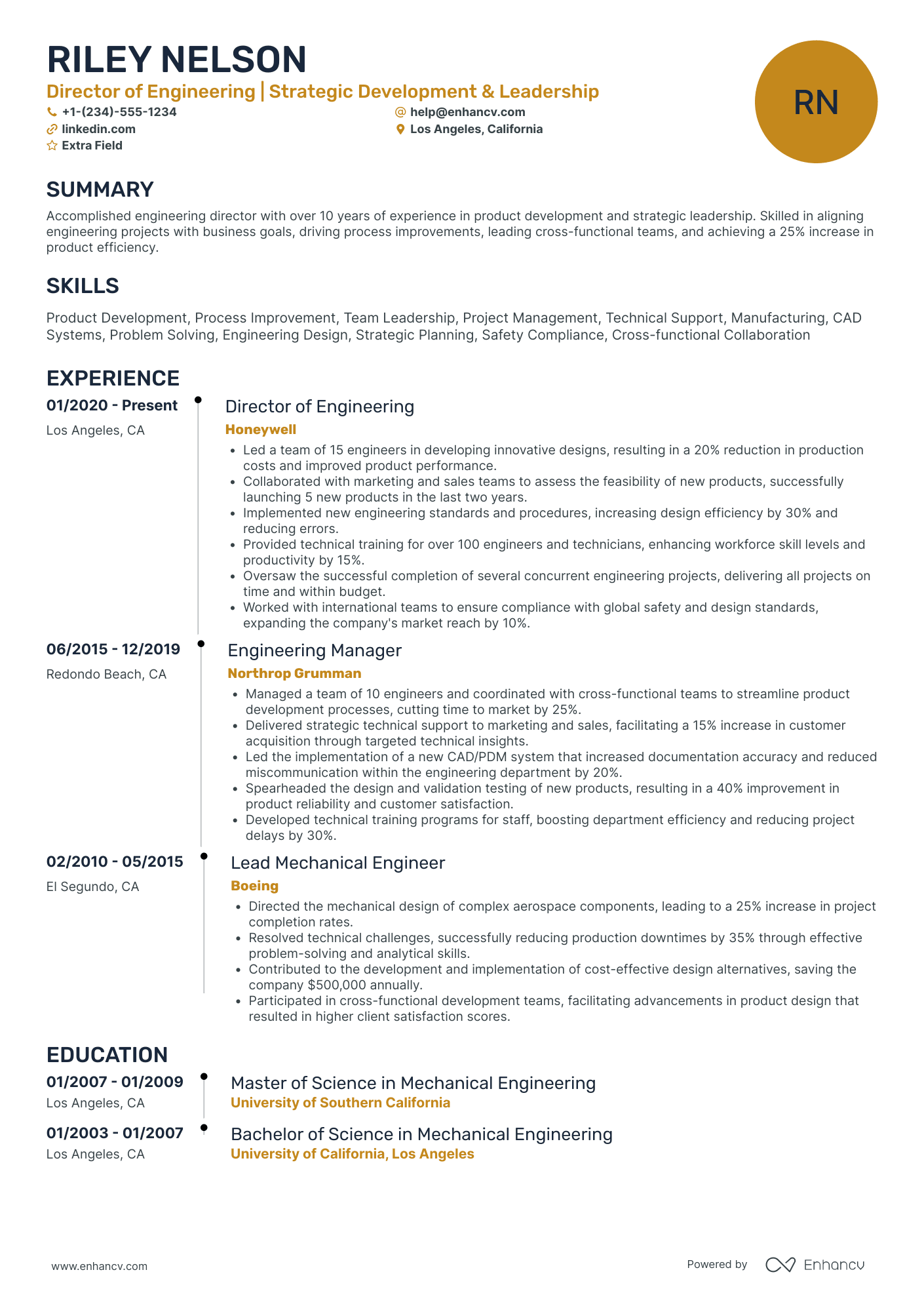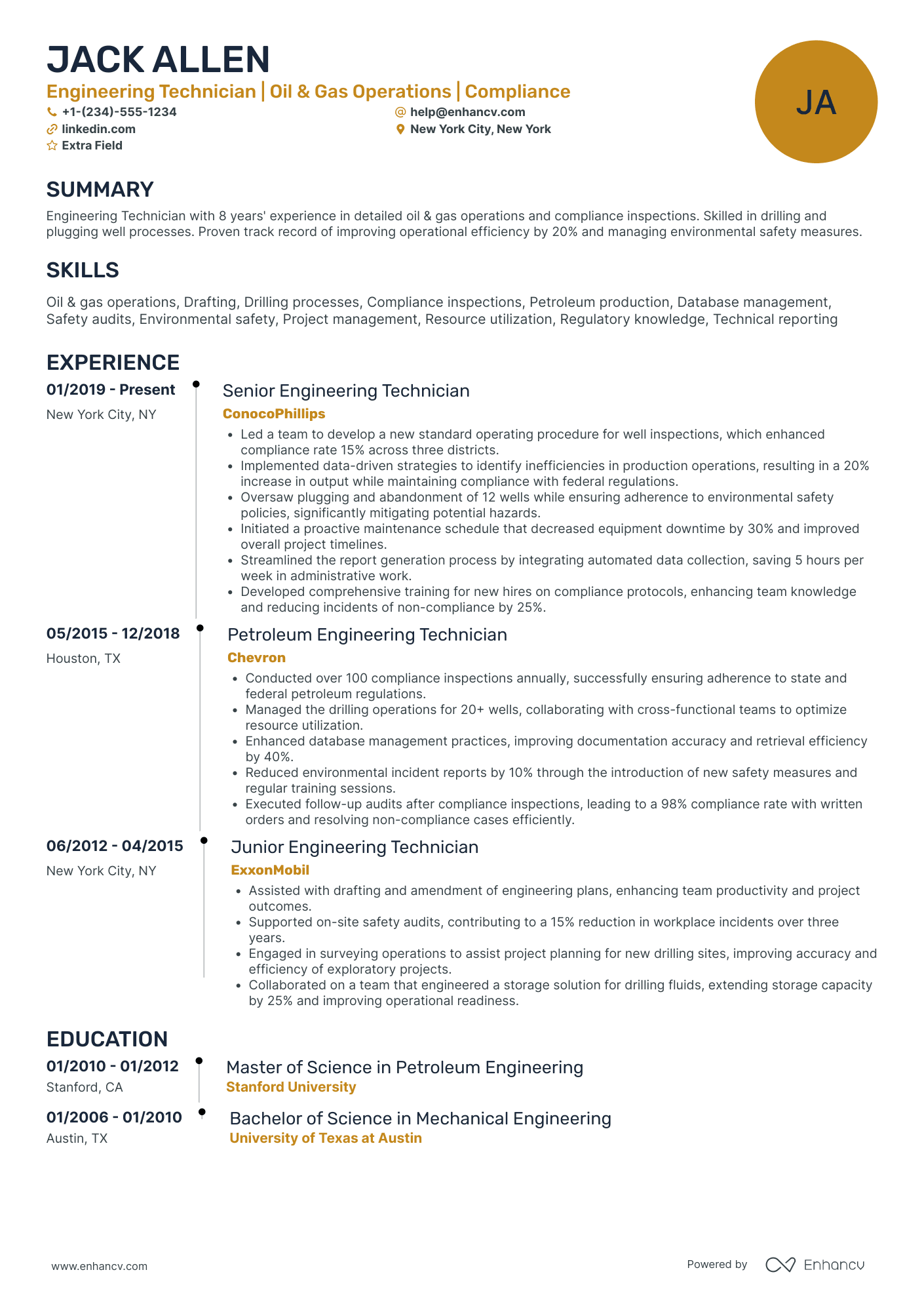Engineering a successful career begins long before the first blueprint is drafted or the first code is written—it starts with crafting the perfect resume. In today's fiercely competitive job market, visibility is more crucial than ever. An analysis of Bureau of Labor Statistics (BLS) data forecasts that the demand for engineering skills is expected to increase by approximately 13% from 2025 to 2031.
Yet, many engineers face a common pitfall: they can design complex systems but struggle to engineer a resume that effectively showcases their expertise and how it translates into business value or team contributions.
In this article, we'll bridge the gap between your technical skills and your ability to communicate them, ensuring your resume isn't just one of many in a pile, but the foundation of your career construction.
Addressing these pitfalls by focusing on soft skills, customization of applications, clear communication, and effective networking can significantly enhance an engineer's job prospects.
In this guide, we’ll navigate you through the following steps:
- The proper way to format your resume for an engineering job.
- We’ll walk you through all of the top sections that need to be included on your resume as well as things that recruiters are watching out for.
- How to successfully provide your professional work experience by demonstrating how to target your application in a way that both impresses and informs.
- How to choose the right skills based on the job you’re applying for and the best way to present them.
- The most effective way to list your education, certifications, and licensure as an engineer.
- Crafting a compelling, game-changing resume summary (or for those of you with less work history—an objective statement).
- Possible additional resume sections to put that final shine on your application.
So, let's get the gears turning and build a resume that's as innovative as the minds we're writing for!
Here are some more position-specific resume guides:
- Hardware Engineer Resume Guide
- Chemical Engineer Resume Guide
- Manufacturing Engineer Resume Guide
- Audio Engineer Resume Guide
- Electrical engineering Resume Guide
- Design Engineer Resume Guide
- Infrastructure Engineer Resume Guide
- Engineering Manager Resume Guide
- Software engineering Manager Resume Guide
Need a cover letter for your engineering resume? Check out this guide:
An engineering Fact
An interesting fact about the engineering industry is its pivotal role in addressing some of the world's most critical challenges, such as climate change, sustainable energy, and infrastructure resilience. For instance, according to the United Nations, engineering innovations are central to achieving the Sustainable Development Goals (SDGs) by 2030.
Engineers are at the forefront of developing renewable energy technologies, designing green buildings, and creating efficient waste management systems that minimize environmental impact and foster sustainable growth. This reflects how engineering isn't just about constructing buildings or developing software—it's increasingly about innovating for sustainability and social good.
Choosing the right resume format is crucial for engineers, as it can significantly enhance the presentation of your technical prowess and professional experience.
Let’s look at the details.
How to format an engineering resume
When crafting a resume as an engineer, choosing the right format for an engineer largely depends on individual circumstances, including career stage, work history, and specific job requirements.
However, here's a general guideline on which format might suit different types of engineering candidates:
- Reverse chronological order format: This is ideal for engineers with a clear and progressive work history—starting with the most recent and working backward. If you’ve been steadily advancing in your field, with each job building upon the last, this format can effectively showcase your upward career trajectory. It's particularly effective for those applying to traditional engineering firms or industries where career progression is valued.
- Functional format: This format is well-suited for engineers who are transitioning into a different area of specialty, those re-entering the workforce after a gap, or new graduates who want to emphasize skills over limited work experience. It allows the candidate to highlight specific technical skills and projects that are relevant to the job, regardless of when they occurred in the career timeline.
- Hybrid (combination) format: This is often the best choice for many engineers because it combines the strengths of both chronological and functional formats. The hybrid format is particularly useful for experienced engineers who have a strong set of relevant skills and a solid work history. It allows you to showcase your key skills and accomplishments upfront, followed by a detailed work history. This format can cater to ATS systems while still appealing to human recruiters who value both skills and experience.
In practice, many engineers opt for the hybrid format as it offers the flexibility to underline technical skills and professional achievements while also detailing a chronological work history, making it highly effective for various scenarios in the engineering job market.
Beyond choosing the right format, other elements of resume format are also important:
Resume designs
- Template: Engineers should consider a double-column template if they want to highlight both technical projects and professional experience efficiently. One column can showcase specific projects or technical skills, while the other lists work experience and educational background, providing a clear and comprehensive view of capabilities and achievements.
- Margins: Keeping resume margins between 0.5 and 1 inch ensures the document is neat and well-organized, reflecting an engineer’s attention to detail and precision—a critical aspect in engineering roles.
- Colors: Opt for muted or professional colors on your resume that add a touch of personality without detracting from the content. For engineers, blues or grays can suggest reliability and technical prowess without overwhelming the document’s professional appearance.
- Fonts: Use clear, ATS-friendly resume fonts such as Arial or Rubik, sized between 10 and 12 points. While the body of the resume should maintain simplicity for readability and ATS compatibility, headers can use a slightly different style to distinguish sections without compromising professionalism.
- Length: Most engineers craft one-page resumes, especially those with less than 10 years of experience. If you have extensive projects, publications, or patents, extending to a second page is acceptable, provided the information is relevant and adds value to your application.
Resume header
- Contact information: Include your full name, engineering discipline as a job title, and physical address. Ensure your contact information is straightforward and professional, including a well-chosen email address.
- Links: Engineers should include links to their professional online profiles, such as LinkedIn, or a personal portfolio website if applicable. This is crucial for showcasing project histories or software capabilities that are better demonstrated through interactive elements or detailed descriptions.
- Resume photo: As in most professional contexts in the U.S., it’s typically best to omit photos to focus on qualifications and avoid potential biases.
File format and naming
- Creative touches: While creativity isn't the primary focus for engineers, using elements like subtle resume lines or color for section breaks can be effective. Ensure any creative touches are minimal and ATS-friendly, focusing on enhancing readability rather than decoration. Enhancv’s resume builder is an excellent source for appropriate design options.
- File format: Always save your engineering resume as a PDF unless otherwise specified. This preserves the resume layout across different devices and ensures that formatting remains consistent, which is crucial for maintaining the professional appearance of the document.
- Naming convention: Name your file in a professional manner, such as ‘FirstNameLastNameEngineer_Resume.pdf’. This helps hiring managers to find and remember your resume easily among many applicants.
By customizing your resume’s design, header, and formatting for engineering, you effectively showcase your technical skills and experience, enhancing your chances of making a great impression and passing through applicant tracking systems.
Tailor your resume format to the job market – a Canadian resume, for example, might differ in layout.
Confident with your current resume? Run it through our AI-powered resume checker to see how it holds up.
Is your resume good enough?
Drop your resume here or choose a file. PDF & DOCX only. Max 2MB file size.
Listed below are the top 5 sections of any engineering resume that you should dedicate some extra effort on:
The top sections on an engineering resume
- Contact information should be at the top to reach you easily.
- Professional summary highlights your key qualifications first.
- Work experience, ideally below the summary, showcases relevant job history and skills.
- Technical skills, placed after work experience, emphasize specific engineering tools and software.
- Education and certifications, situated below skills, display academic and professional qualifications.
- Projects section, following education, details engineering projects that demonstrate experience.
- Professional affiliations, at the end, show membership in engineering societies.
Recruiters also expect you to demonstrate the following essentials within those sections:
What recruiters want to see on your resume
- Relevant technical skills: To assess the candidate's proficiency with engineering tools and technologies.
- Project experience: To gauge the practical application of engineering principles and teamwork.
- Problem-solving abilities: To evaluate the candidate's approach to tackling engineering challenges.
- Professional certifications: To verify expertise and commitment to the engineering field.
- Continuous learning: To understand the candidate's dedication to staying updated with industry advancements.
Now that we've identified the ideal resume format to showcase your engineering skills, let's focus on articulating your professional work history to highlight your technical expertise and career achievements further.
How to write a successful engineering resume experience section
Think of your resume as a technical specification sheet for a complex piece of machinery—you. Just as a spec sheet highlights the most important features and performance metrics to potential buyers, your resume should underline your top skills, achievements, and experiences to potential employers. It needs to convey clearly why you’re the best fit for the job, much like how a well-crafted spec sheet helps an engineer decide on the best equipment for their needs.
Did you know that recruiters spend an average of just 7.4 seconds on an initial resume review? This makes it vital to ensure your work experience is concise, relevant, and impressive right from the start.
Writing work experience
When writing your work experience on your resume, clarity, and relevance are key. Focus on three to five of your most recent positions including:
- Job title: Clearly indicates your role.
- Company name: Specify where you worked.
- Location: City and state (or country).
- Dates of employment: Start and end dates (month and year).
- Responsibilities and achievements: Use bullet points to describe your duties and highlight specific accomplishments.
Elements to include
- Action verbs: Start each bullet point with a strong action verb (e.g., designed, implemented, optimized).
- Quantifiable achievements: Include metrics to quantify your impact (e.g., “Increased system efficiency by 20%”).
- Relevant skills: Highlight skills pertinent to the job you’re applying for (e.g., specific software, methodologies).
- Projects: Mention significant projects you contributed to or led, detailing your role and outcomes.
Tips for an effective entry
- Be specific: Instead of saying, “Worked on project management,” say, “Managed a cross-functional team of 10 engineers to complete a $1M project two months ahead of schedule.”
- Tailor your entries: Match your experience to the job description. Emphasize the skills and experiences most relevant to the job you’re applying for.
Tailoring your resume
Just as engineers make precise adjustments to ensure optimal performance and efficiency, targeting your resume ensures that it effectively highlights the skills and experiences most relevant to the specific job. This can also help your resume get past Applicant Tracking Systems that many companies use.
To illustrate this we’ve provided an actual example of a job posting below for a mechanical engineer. Let’s craft our experience entries based on that and you can see how much more effective a targeted resume can be.
Job post example
Job Title: Mechanical Engineer
Job Description: We are seeking a skilled Mechanical Engineer to join our team at ELEK-tec, a growing engineering team specializing in machine automation, custom machine design, and integration. The successful candidate will play a key role in designing and integrating mechanical solutions for both new machine builds and the enhancement of existing equipment.
Key Responsibilities and Duties:
- Design mechanical systems and components for new machine builds and integration into existing equipment.
- Develop conceptual designs and provide mechanical solutions for new projects.
- Collaborate with the team during the scoping phase of new projects.
- Assist in custom quote estimating for projects.
- Cultivate and maintain relationships with local machine shops and distributors.
- Oversee procurement and fabrication of machined parts, ensuring quality and timeliness.
- Provide system assembly and startup support as required.
- Generate technical documentation for each project, including assembly drawings and Bills of Materials (BOMs).
- Identify opportunities for machine improvements and upgrades to enhance customer equipment and processes.
Qualifications:
- Bachelor's degree in Mechanical Engineering or related field.
- Experience in mechanical design and engineering, preferably in manufacturing and automation
- Proficiency in CAD software (Autodesk Inventor) for 3D modeling and drafting.
- Strong understanding of mechanical principles, materials, and manufacturing processes.
- Experience with custom quote estimating and procurement processes.
- Comfortable with multitasking, and working in an agile environment.
- Excellent communication skills and ability to collaborate effectively with cross-functional teams.
- Detail-oriented with a focus on delivering high-quality work within project deadlines.
Experience: Mechanical engineering or machine design: 3 years (Preferred)
Location: South Chesterfield, VA
Job Type: Full-time
Pay: $75,000.00 - $95,000.00 per year
Have a specific job post you want to tailor your resume to? No problem! Just use our free AI-assisted resume scanner and get your ATS compatibility score instantly!
Now, let’s take a look at some work entries. This first example demonstrates a serious lack of certain elements.
- •Worked on mechanical systems for new machine builds.
- •Made designs for projects.
- •Dealt with procurement and parts.
- •Maintained relationships with suppliers.
As we can see, the above example isn’t the most effective one. Here are some things that are problematic in the entry:
- Lack of specificity: The descriptions are vague and don’t provide specific details about the candidate's contributions or achievements.
- No quantifiable metrics: There are no quantifiable results or metrics to demonstrate the impact of the candidate's work.
- General language: The language used is generic and doesn’t highlight any particular skills or technologies.
- Incomplete information: Missing company location and detailed dates of employment reduce the clarity of the entry.
With those aspects highlighted, we can now turn that example into a well-written one. Have a look below:
- •Designed and integrated mechanical systems and components for over 15 new machine builds, achieving a 20% reduction in production time.
- •Developed conceptual designs and mechanical solutions for diverse projects, enhancing efficiency and functionality, resulting in a 15% increase in overall system performance.
- •Oversaw the procurement and fabrication of machined parts, ensuring 95% on-time delivery and maintaining a 98% quality assurance rate.
- •Cultivated and maintained relationships with local machine shops and distributors, streamlining the procurement process and reducing costs by 10%.
Candidate properly highlights:
- Relevance to job description: The candidate’s experience directly aligns with the key responsibilities listed in the job posting, such as designing mechanical systems and developing conceptual designs.
- Technical skills: Demonstrated proficiency in mechanical design and integration, which matches the job requirements for experience in manufacturing and automation.
- Documentation and quality assurance: Experience in generating technical documentation and ensuring the quality and timely delivery of machined parts aligns with the job’s focus on detail-oriented work and high-quality outputs.
Here are the actual improvements they made:
- Specificity: Clearly describes the tasks and responsibilities, providing a better understanding of the candidate's role.
- Quantifiable metrics: Includes specific metrics to demonstrate the impact of the candidate's work (e.g., 20% reduction in production time).
- Detailed language: Uses precise language to highlight specific skills and technologies (e.g., developed conceptual designs, managed procurement).
- Complete information: Provides company location and detailed dates of employment, giving a clear timeline of the candidate's experience.
In summary, listing work experience on your engineering resume effectively and tailoring it to the job posting are critical steps to landing your desired role. By clearly showcasing your responsibilities, achievements, and relevant skills, you make it easier for hiring managers to see your potential as a valuable team member.
PRO TIP
Applicant Tracking System (ATS) is software that scans resumes for keywords, skills, and qualifications matching the job description. It filters out unqualified applicants, ensuring only the most relevant resumes reach recruiters. Effective resumes must be tailored with appropriate keywords and a clear format.
How to quantify impact on your resume
Doing this is essential because it provides clear, specific evidence of your achievements, making it easier for recruiters to understand and compare your contributions. It highlights your effectiveness and results-oriented approach, demonstrating your capability to deliver tangible outcomes. Specific metrics enhance your credibility and capture recruiters' attention, helping your resume stand out in a competitive job market.
Here are some specific elements that an engineer can quantify using numbers on their resume:
- Quantify cost savings from project optimizations to demonstrate fiscal responsibility.
- Detail percentage increase in efficiency through process improvements to show impactful outcomes.
- Specify the reduction in downtime achieved by upgrading systems to emphasize reliability improvements.
- List dollar amounts of budgets managed to highlight financial stewardship capabilities.
- Include statistics on reduced project timelines to show proficiency in expediting deliverables.
- Mention the scale of data analyzed in projects to illustrate an ability to handle complex information.
- Record the improvement in product quality metrics to evidence commitment to excellence.
- Cite energy consumption reductions to showcase sustainability contributions.
Scientists investigate that which already is; Engineers create that which has never been.
Albert Einstein
Is it possible to craft an engineering resume with no work experience
Absolutely! While experience is valuable, there are several ways to make your application stand out and demonstrate your potential to employers. Let’s explore some ways to enhance your engineering job application even without work experience:
- Highlight relevant education: Display your academic achievements, relevant coursework, and any projects you completed during your studies. This demonstrates your foundational knowledge and skills.
- Showcase projects and competitions: Include any engineering projects, capstone projects, or competitions you've participated in. Detail your role, the technologies you used, and the results you achieved.
- Gain certifications and skills: Obtain certifications in relevant software or engineering principles. Online courses can also help you build skills and show your dedication to continuous learning.
- Internships and volunteer work: Internships, even unpaid ones, and volunteer positions can provide valuable hands-on experience. Include any relevant work you've done, even if it's not a traditional job.
- Join engineering clubs or societies: Being an active member of engineering clubs or professional societies like ASME or IEEE can provide networking opportunities, access to resources, and experiences to add to your resume.
- Develop a strong portfolio: Create a portfolio showcasing your projects, designs, and any technical work. A well-presented portfolio can provide concrete evidence of your abilities.
- Leverage networking: Connect with professionals in the field through LinkedIn, attend industry events, and participate in forums. Networking can open doors and lead to opportunities that aren't advertised.
- Tailor your resume and cover letter: Customize your resume and cover letter for each job application, emphasizing the skills and experiences that are most relevant to the position.
Remember, every engineer started somewhere. By showcasing your passion, skills, and willingness to learn, you can make a strong case for yourself and land that first engineering job. Stay motivated and keep pushing forward—your opportunity is out there!
Now that we've analyzed the aspects surrounding your professional experience, let's focus on illustrating the hard and soft skills that make you a well-rounded and capable engineer.
How to list your hard skills and soft skills on your resume
Listing skills on your resume is important because it underlines your qualifications and capabilities, making it easier for recruiters to see your suitability for the role. It helps match your profile with job requirements, enhances your resume's visibility in Applicant Tracking Systems, and demonstrates your value to potential employers.
Let’s have a look at hard skills first.
Hard skills
Listing hard skills on an engineering resume is crucial because it showcases your technical expertise and proficiency in specific tools and technologies essential for engineering roles.
Create a dedicated resume skills section labeled "Technical Skills" or "Hard Skills,” typically placed near the top or after the work experience section. Be specific and relevant by listing particular tools, software, and methodologies you’re proficient in.
Tailor these skills to the job you’re applying for. If you have many hard skills, consider organizing them into categories like "Software," "Programming Languages," and "engineering Tools" for better clarity.
Below are several crucial ones that you would really benefit from having on your application:
Best hard skills for your engineering resume
- AutoCAD / CAD
- MATLAB
- SolidWorks
- Python
- C++
- LabVIEW
- Revit
- ANSYS
- PLC Programming
- Electrical Circuit Simulation
- 3D Modeling
- Finite Element Analysis
- Robotics
- PCB Design
- SCADA Systems
- HVAC Systems
- Hydraulic Analysis
- Project Management Software (e.g., MS Project)
- Lean Manufacturing
- Quality Control Analysis
Now, let’s get into soft skills.
Soft skills
Including soft skills on your resume is crucial as they showcase your ability to collaborate and adapt. Instead of listing them in a separate section, integrate them throughout your resume.
Mention key soft skills in your summary or objective, and highlight them within work experience bullet points to show real-world application, such as leading a team or effective communication.
Additionally, relevant soft skills can be noted in the education section, like teamwork in group projects or leadership roles. Focus on the most relevant skills, use job description keywords, and balance hard and soft skills to present yourself as a well-rounded candidate.
Don’t forget to be honest about your proficiency, as you may be tested on these skills during interviews.
Here are some of the more sought-after engineering soft skills we’ve come across in our research:
Best soft skills for your engineering resume
- Problem-solving
- Critical thinking
- Team collaboration
- Leadership
- Communication
- Adaptability
- Creativity
- Time management
- Attention to detail
- Project management
- Conflict resolution
- Negotiation
- Decision-making
- Initiative
- Interpersonal skills
- Organizational skills
- Stress management
- Analytical thinking
- Empathy
- Persuasion
Let's move on to crafting compelling education entries that highlight your academic achievements and qualifications.
How to list your certifications and education on your resume
Detailing education, certifications, and licensure is extremely important on an engineer's resume. These elements not only validate the technical competencies and qualifications of the engineer but also fulfill essential criteria that many employers require for engineering roles.
Let’s go through each of these components and why they’re so crucial.
Education
Education on your resume establishes the fundamental knowledge base and technical expertise necessary in engineering. It's especially important because:
- Credential verification: Many engineering positions require at least a bachelor’s degree in an engineering discipline. This is often the minimum educational requirement to even be considered for technical roles.
- Specialization: Your degree can also indicate your area of specialization, such as civil, mechanical, electrical, or chemical engineering, which helps employers quickly understand where your expertise lies.
Present your degrees in reverse chronological order, starting with the most recent. For each degree, include the type of degree earned, your major and minor if applicable, and any relevant coursework or academic honors, such as cum laude distinctions or Dean's List recognitions. Also, specify the name of the institution and your year of graduation.
Another note is that it would be best to avoid stating your GPA on your resume if it’s lower than 3.5.
Here’s how an education entry should look like:
- •Honors: Magna Cum Laude
- •Relevant Coursework: Thermodynamics, Fluid Mechanics, Material Science, Advanced CAD
- •Senior Project: 'Design and Optimization of a Solar-Powered Water Pumping System' – Led a team of four in the design and development of an efficient, cost-effective solar-powered water pumping system for rural areas.
Certifications
Certifications on your resume provide proof of professional development and specialization beyond initial education. They’re vital because:
- Skill enhancement: Certifications demonstrate that you've obtained additional skills and are proficient in specific tools, technologies, or methodologies relevant to your engineering discipline.
- Professional credibility: They enhance your professional credibility and can make you a more competitive candidate, particularly for advanced or specialized engineering roles.
Include certifications that are current and relevant to the job you're applying for. List the certifying body and the year of certification.
A dedicated "Certifications" section is generally the most effective and professional way to highlight them. Here's why:
- Visibility: A dedicated section makes it easy for recruiters to find and review your certifications quickly.
- Professionalism: It shows that you take your professional development seriously and are organized in presenting your qualifications.
- Relevance: It allows you to list multiple certifications without cluttering other sections of your resume.
It’s recommended to place this section immediately after your education. This is a logical spot since certifications often complement your educational background.
Here’s an example:
Licensure
Licensure, such as a Professional Engineer (PE) license, is crucial in many branches of engineering, especially where public safety and welfare are concerned, like civil or structural engineering. Licensure is important because:
- Legal requirement: In many cases, a license is legally required to perform certain services or to hold specific titles, such as “Professional Engineer.”
- Trust and authority: Having a PE license or similar accreditation establishes a level of trust and authority, and enables engineers to sign off on projects, take on a higher level of responsibility, and potentially lead projects.
Specify any licenses you hold along with the licensing body and the state in which you’re licensed.
Placement of your licensure should usually go after your education and it would be effective to even combine them with your certifications. If it’s of particular importance in the job offer, it can be mentioned in your professional summary at the top of your resume.
In conclusion, showcasing your education, certifications, and licensure prominently on your resume not only highlights your qualifications and readiness for the role but also aligns with regulatory and industry standards, enhancing your professional standing and job prospects.
Here are a few of the most prominent certifications and licensure available for engineers:
Best certifications for your engineering resume
With that clearly outlined, let's now focus on crafting impactful resume summaries and objective statements to capture the attention of potential employers.
How to write your engineering resume summary or objective
A resume summary or objective statement is crucial on an engineering resume as it quickly highlights your qualifications and career goals. Did you know that a well-crafted summary can improve your chances of getting noticed by 70%? Engineer your success from the start!
Resume summary vs objective statement
A resume summary puts your key skills and accomplishments in the spotlight, ideal for experienced engineers. An objective statement outlines your career goals, better for entry-level engineers or career changers.
It’s vital to reiterate once again to tailor your resume in all aspects but especially so for your personal statement. Customizing these sections to reflect the job description and company values helps demonstrate your genuine interest in the position and highlights how your skills and goals align with the employer's needs. This tailored approach makes your resume more relevant and increases your chances of catching the recruiter's attention.
Let’s dive in a bit deeper and explore each one.
Optimize your resume summary and objective for ATS
Drop your resume here or choose a file.
PDF & DOCX only. Max 2MB file size.
Resume summary
What it should contain:
- Key skills: Highlight your most relevant technical and soft skills.
- Accomplishments: Mention significant achievements or projects.
- Experience: Briefly note your years of experience in the field.
What it should express:
- Professional competence: Show that you’re highly skilled and experienced.
- Value proposition: Convey what you bring to the table and how you can benefit the employer.
Let’s put theory into action. Below is a poor example of a resume summary from a candidate applying for the position listed in the example from earlier. Have a look.
Here’s exactly what they did wrong:
- Lack of specificity: The summary is vague and doesn’t mention key skills or accomplishments.
- Generic language: Uses broad terms like "various areas of engineering" and "projects" without detailing any specific experiences or achievements.
- No tailoring: Doesn’t reference the job posting or how the candidate's experience aligns with ELEK-tec's requirements.
- Missed key qualifications: Fails to highlight critical qualifications such as experience in machine automation, custom machine design, or proficiency with Autodesk Inventor.
- Weak impact: Doesn’t convey the candidate's unique value or how they can contribute to the company's goals.
Now if we improve those shortcomings, we’ll get something more like this:
This improved version has a significantly higher chance of impressing recruiters. Here are the points they remedied:
- Specificity: Clearly mentions key skills and experiences, such as proficiency in Autodesk Inventor and specialization in machine automation and custom machine design.
- Relevance: Tailors the summary to align with the job posting, underscoring relevant qualifications and experiences.
- Key qualifications: References critical qualifications such as experience in mechanical design, procurement, and fabrication processes.
- Value proposition: Conveys the candidate's unique value and how they can contribute to ELEK-tec's goals.
- Professional tone: Maintains a professional and confident tone, emphasizing the candidate's strengths and suitability for the role.
Objective statement
What it should contain:
- Career goals: Clearly state your professional aspirations.
- Relevant skills: Mention the skills that align with your career goals.
- Position sought: Specify the role you’re targeting.
What it should express:
- Career direction: Indicate where you see your career heading.
- Alignment with company goals: Show how your goals match the company's objectives.
Below is an excellent version of a targeted objective statement.
Additional sections for an engineering resume
Adding additional sections is beneficial as it showcases a comprehensive skill set and differentiates you from other candidates. These sections provide context to your experience, highlight specialized expertise, and improve ATS compatibility. However, only include them if you have enough space and they’re relevant to the particular job posting.
Here are some additional sections for an engineering resume:
Projects
- Location: Directly after work experience. Provide a link to an online portfolio if you have numerous projects to show and/or if the projects are best demonstrated visually.
- Content: Highlight specific projects you've worked on, detailing your role, technologies used, and the outcomes. This section showcases your practical experience and ability to deliver tangible results.
- Location: After education
- Content: List memberships in relevant engineering societies and organizations, such as ASME (American Society of Mechanical Engineers) or IEEE (Institute of Electrical and Electronics Engineers). This demonstrates your commitment to the profession and staying updated with industry standards.
Languages
- Location: After technical skills
- Content: List any additional language skills you may have, especially if they could be beneficial in a diverse work environment or for collaborating with international teams and clients.
Including these sections will make your resume more compelling and relevant to the job posting, highlighting your qualifications, practical experience, and commitment to professional development.
Key takeaways
Now that we have gone through all the essential elements of crafting a successful engineering resume, let’s just recap some of the more important points we covered.
Don’t forget to:
- Choose the right resume format (reverse chronological, functional, hybrid) based on your career stage and job requirements.
- Use a double-column template to efficiently highlight technical projects and professional experience.
- Keep resume margins between 0.5 and 1 inch for a neat, organized look.
- Opt for muted, professional colors and ATS-friendly fonts like Arial or Rubik.
- Limit resume length to one page unless you have extensive relevant projects or publications.
- Include contact information and professional online profiles in the resume header.
- Save your resume as a PDF and use a professional naming convention.
- Emphasize relevant technical skills and project experience in dedicated sections.
- Quantify your achievements with specific metrics to demonstrate impact.
- Tailor your resume to the job description, using keywords and focusing on relevant skills and experiences.
Engineering resume examples
By Experience
Engineering Student
Sophomore Engineering
Engineer In Training
Engineering Intern
Entry-Level Engineering
Senior Engineer
Junior Structural Engineering Analyst
Software Engineering Intern
Senior Mechanical Engineering Consultant
Entry-Level Systems Engineering Associate
Experienced Network Engineering Lead
Mid-Level Agricultural Engineering Analyst
By Role
Aerospace Engineering
Audio Engineer
Automotive Engineering
Biomedical Engineer
Chemical Engineer
Civil Engineer
Director of Engineering
Engineering Manager
Entry Level Mechanical Engineer
Mechanical Engineer
Geotechnical Engineering
Hardware Engineer
Industrial Engineer
Petroleum Engineer
Structural Engineer
VP of Engineering
Electrical Engineering
- Learn more about your target company workflows and tools. Chances are, your target company uses a unique set of tools for its projects: open-sources tools, or niche platforms. Study company’s LinkedIn and blogs to learn more. If you have relevant experience with the same or similar tools, make sure to include it in your resume. While a non-technical hiring manager will probably ignore this information, you might get bonus points with a technical recruiter or a tech lead when your electrical engineer resume moves further down the funnel.
- Use a targeted resume.When a company searches for an electrical engineer, they have a very clear idea of what their ideal candidate looks like. There are serious budgets at stake, and no one would trust someone who has not proven themselves before. So when a company writes: “We are looking for individuals who are very innovative with a proven track record both in development and volume manufacturing,” they mean it. Study job requirements. Study company blogs. Make sure to target your electrical engineering resume to the company’s needs. Put the most relevant experience first, and frame the rest accordingly to maximize your chances.
